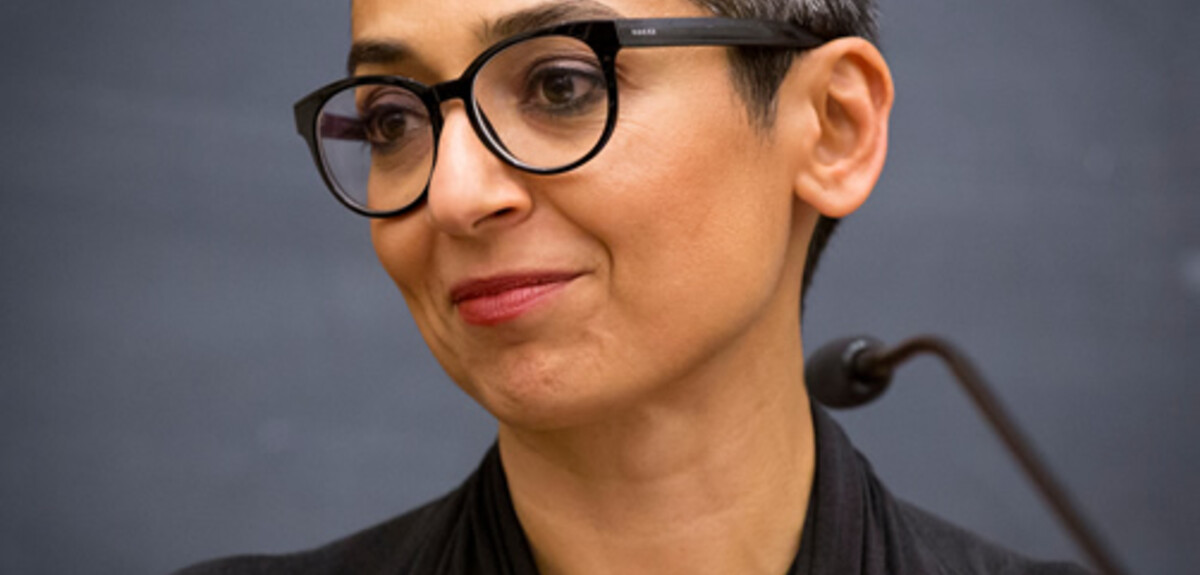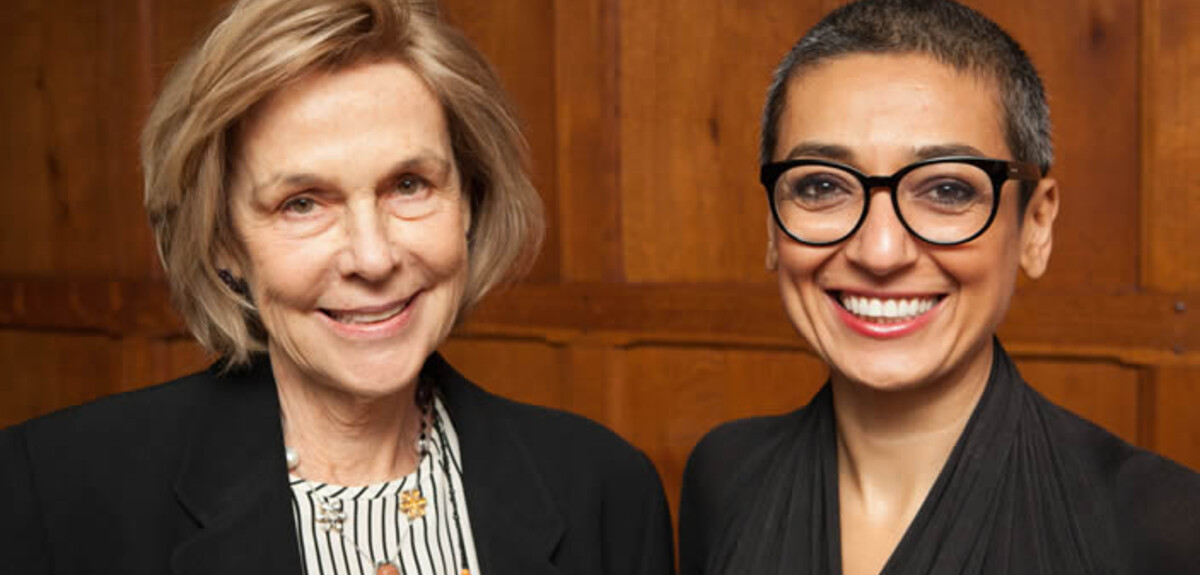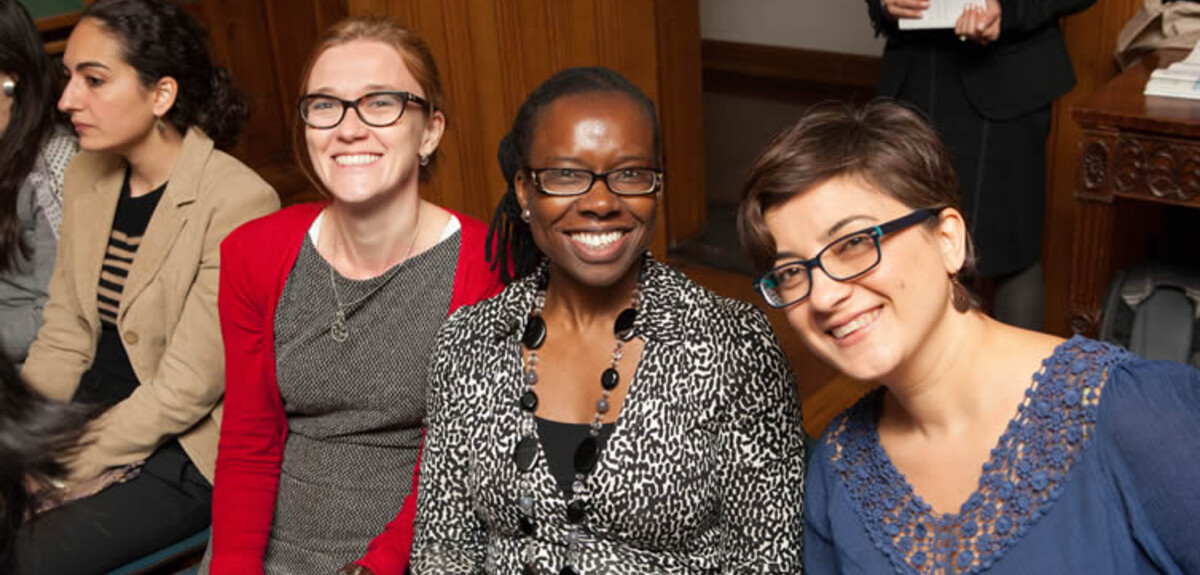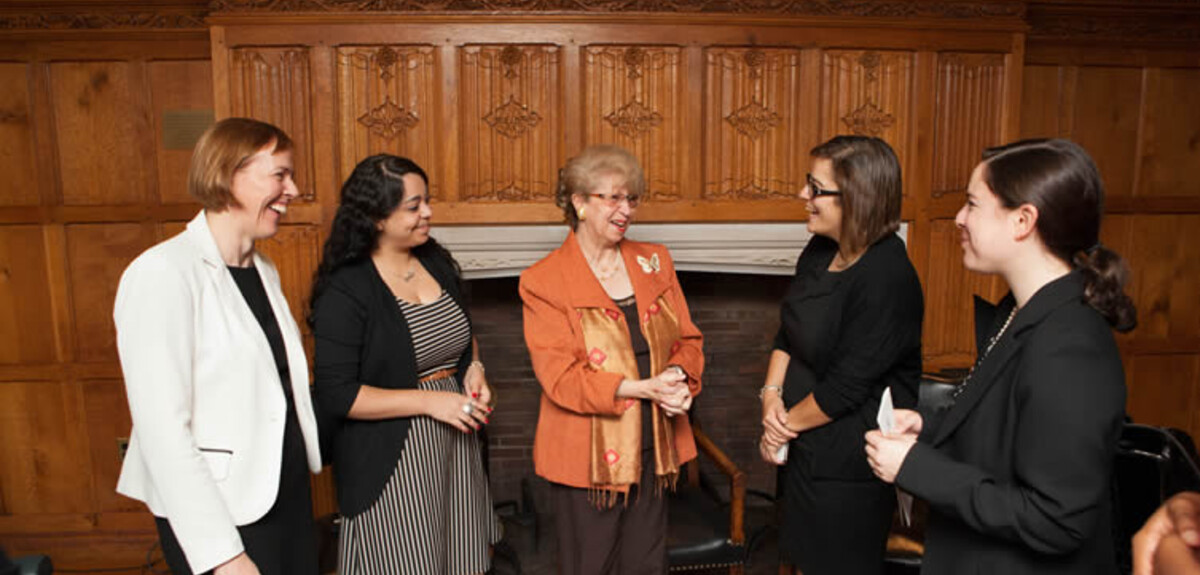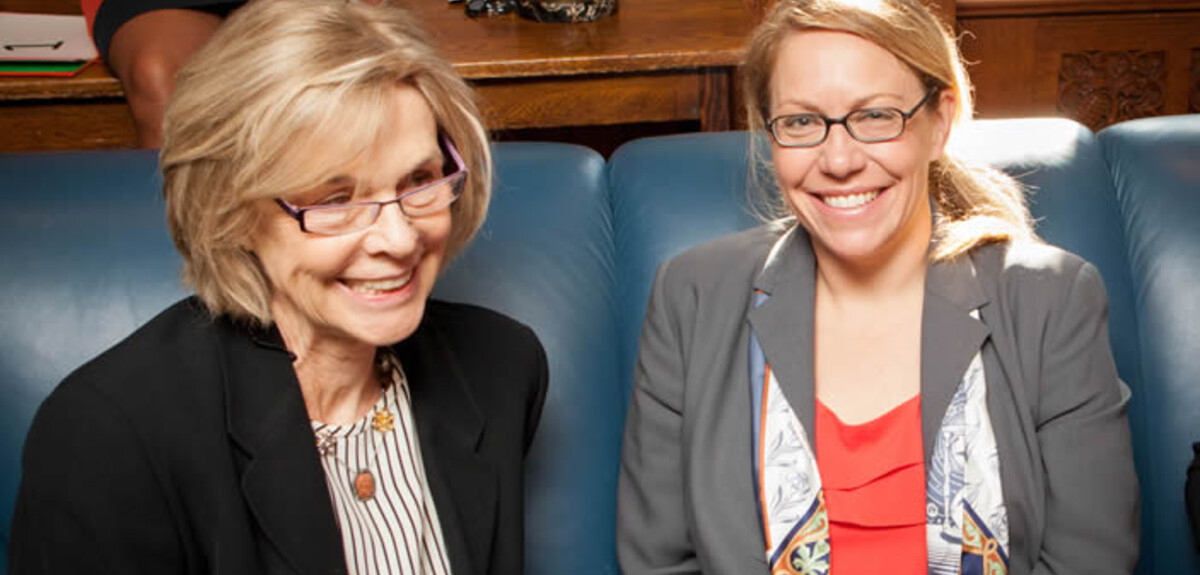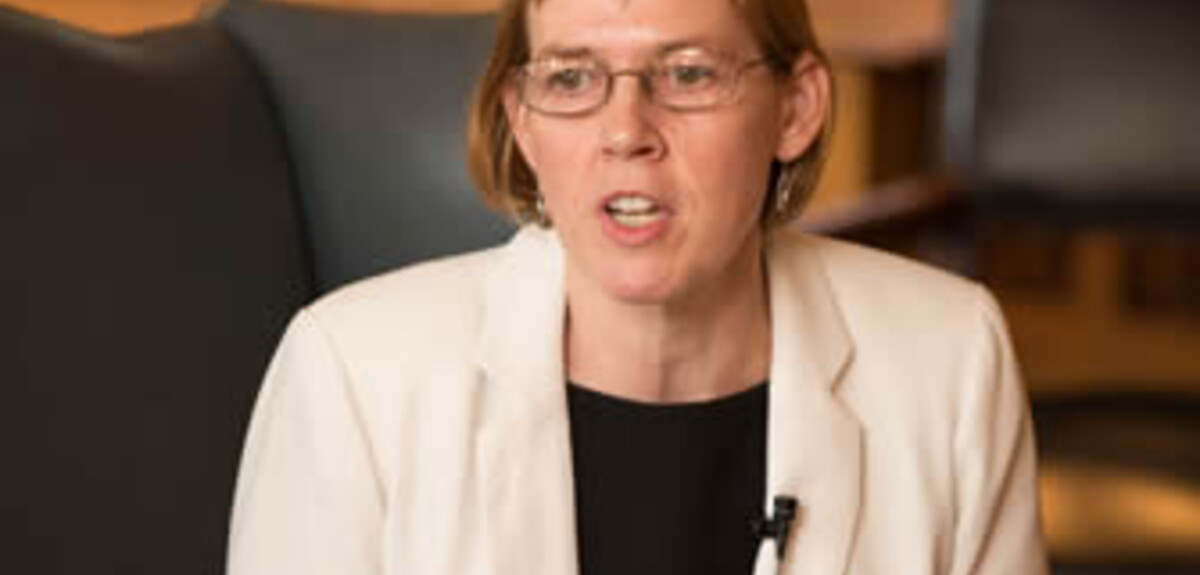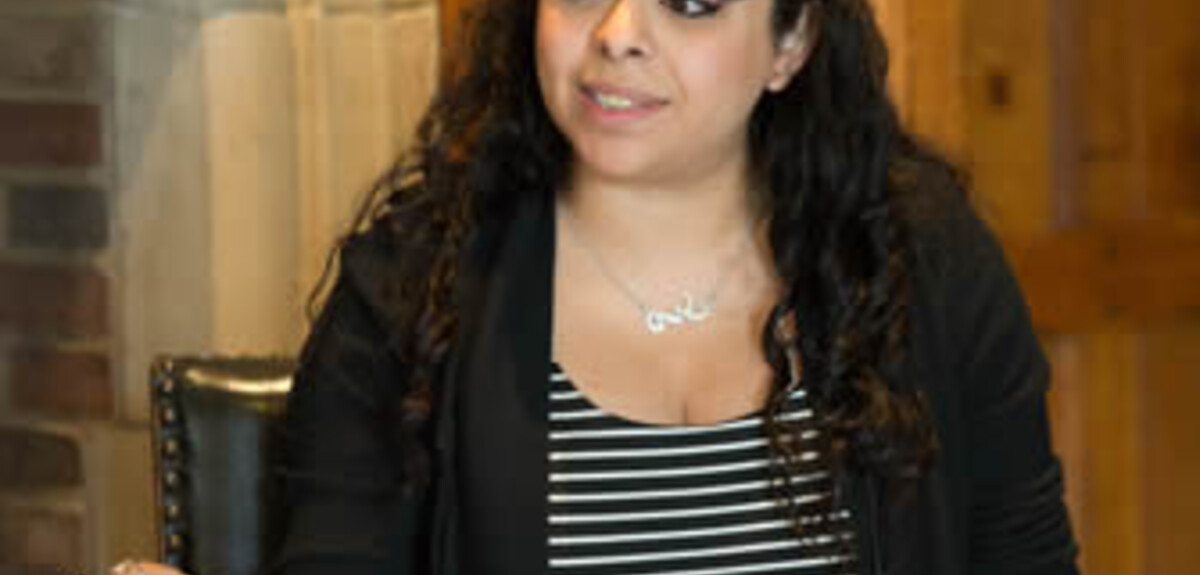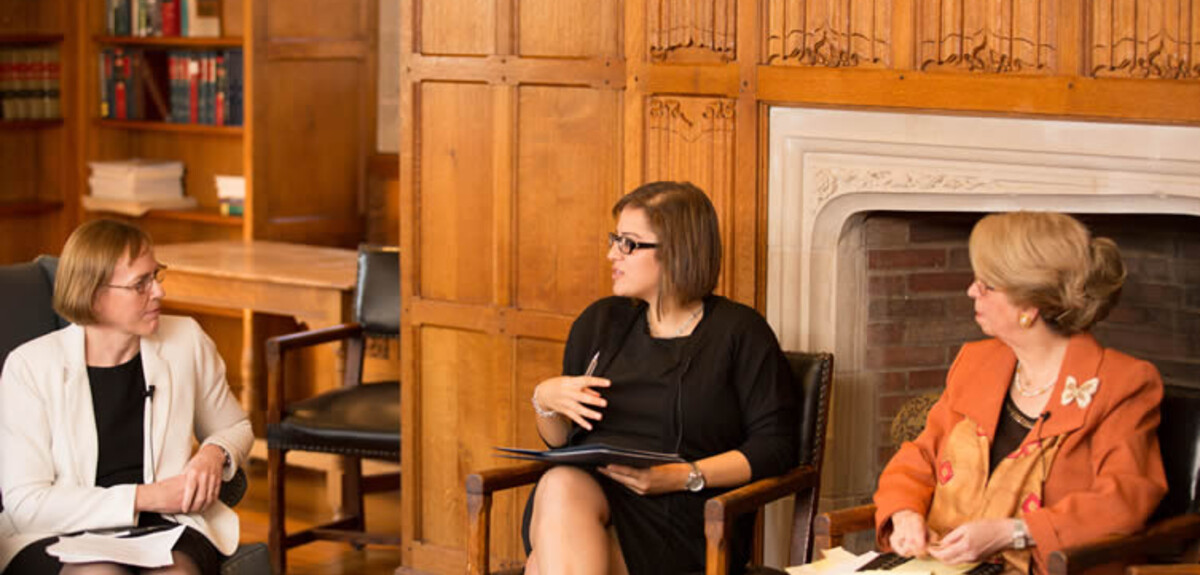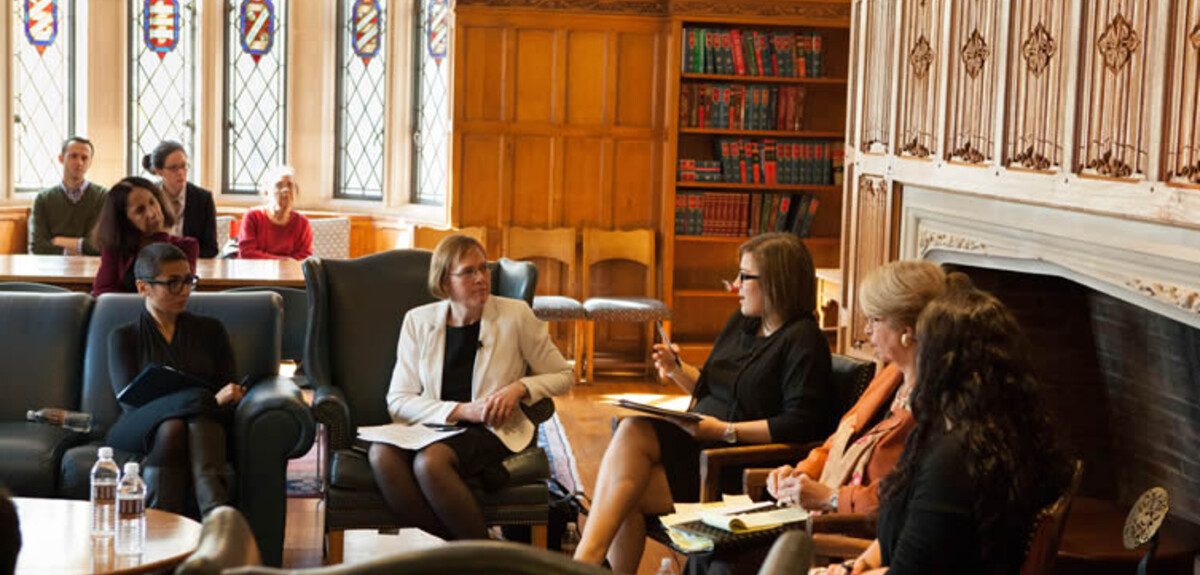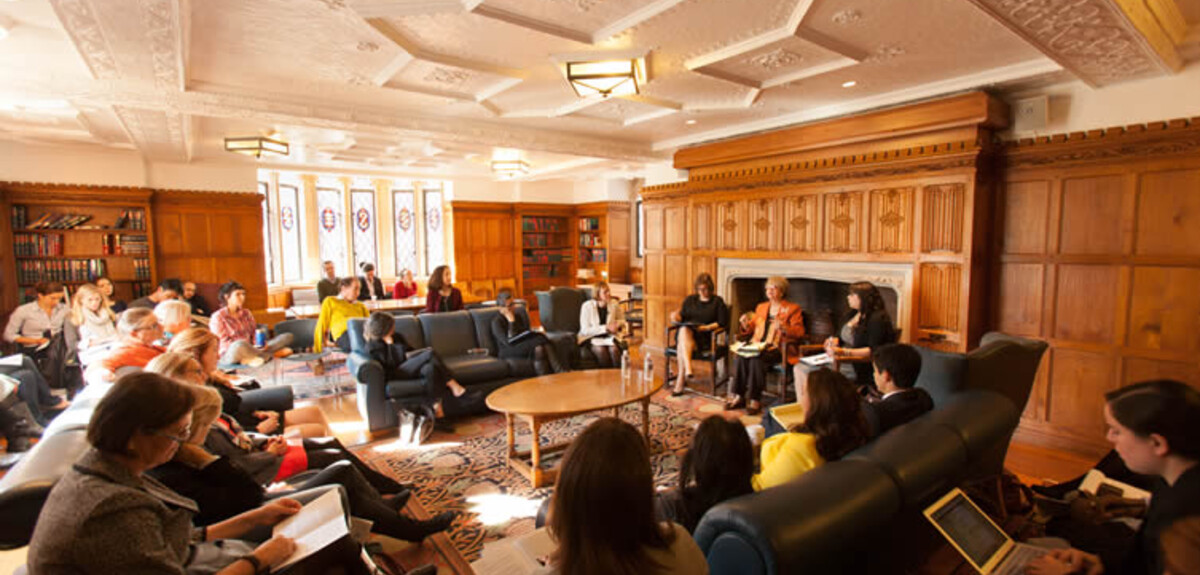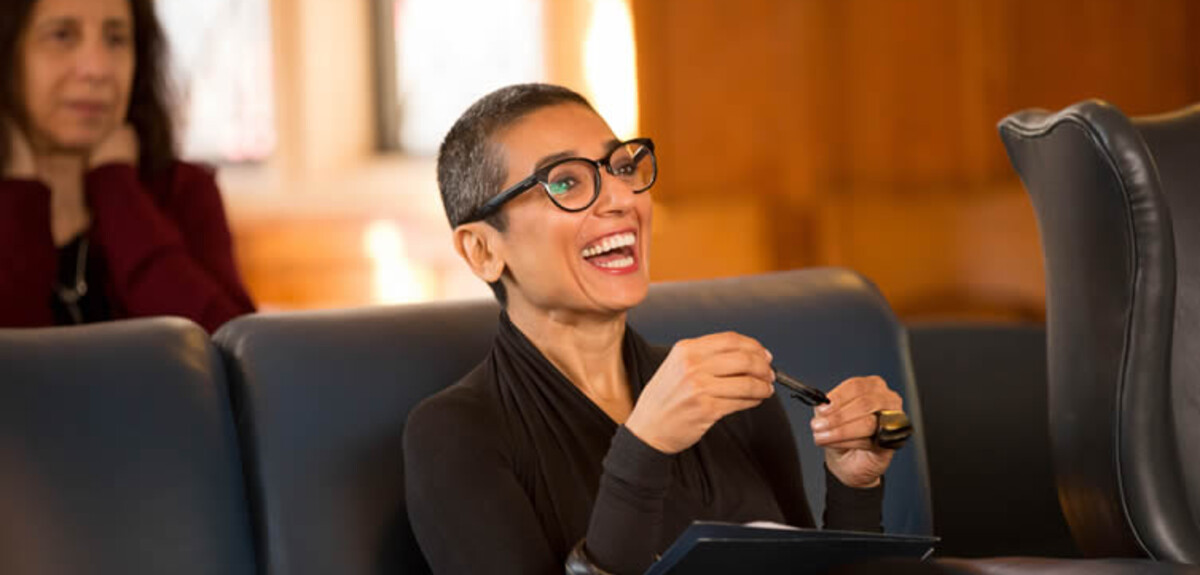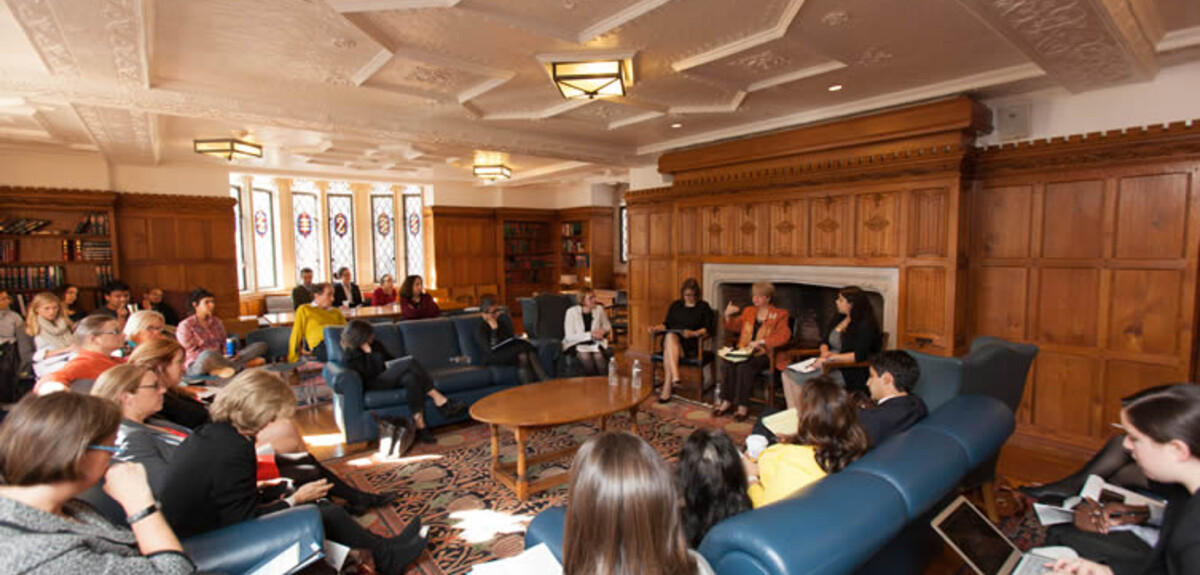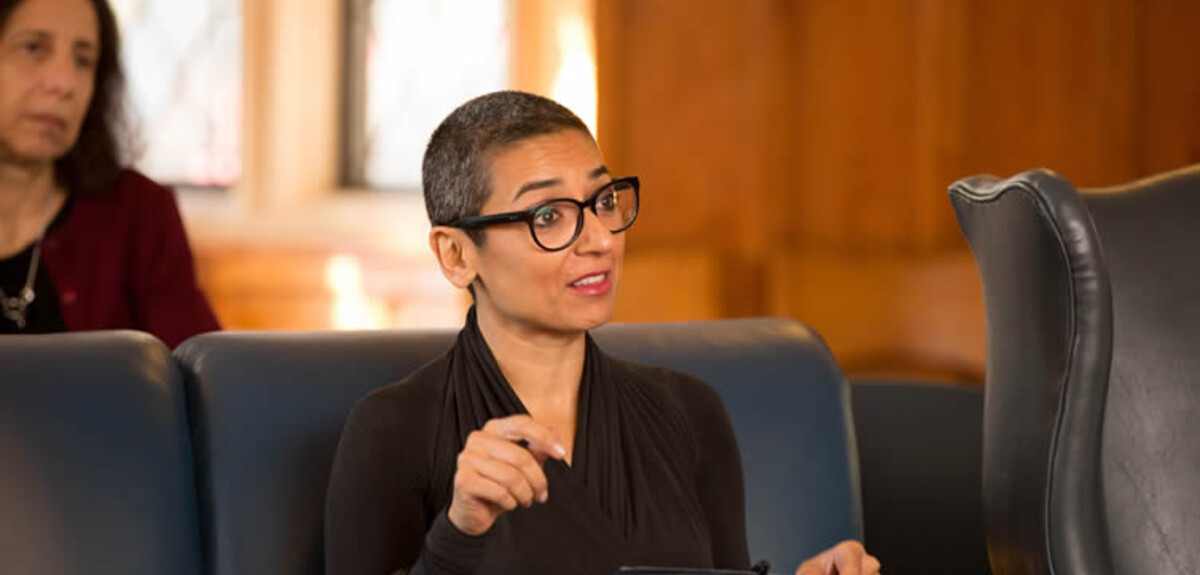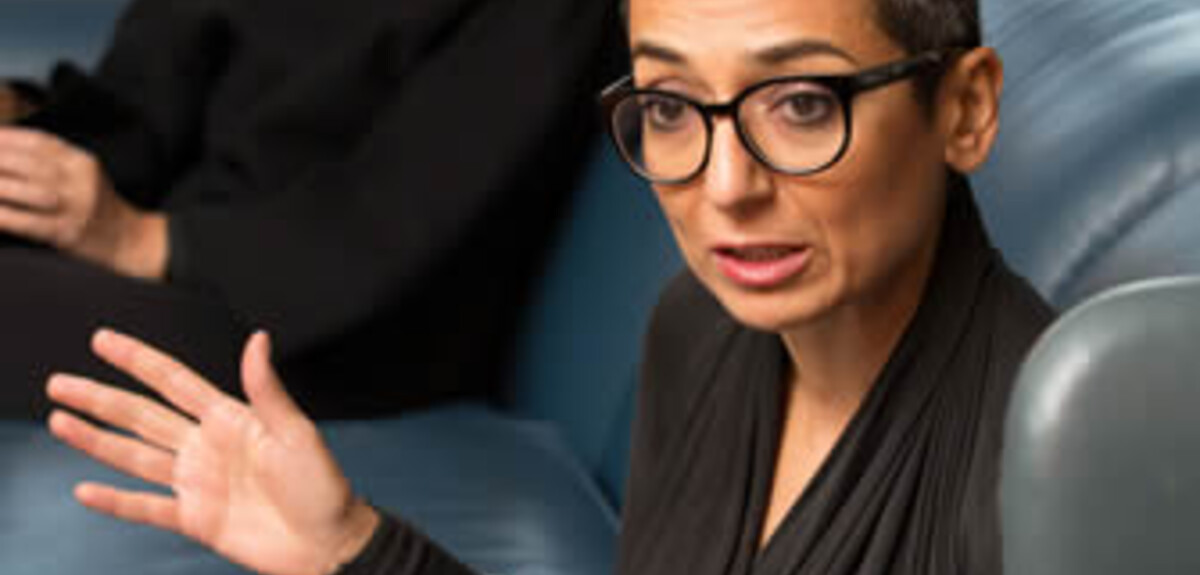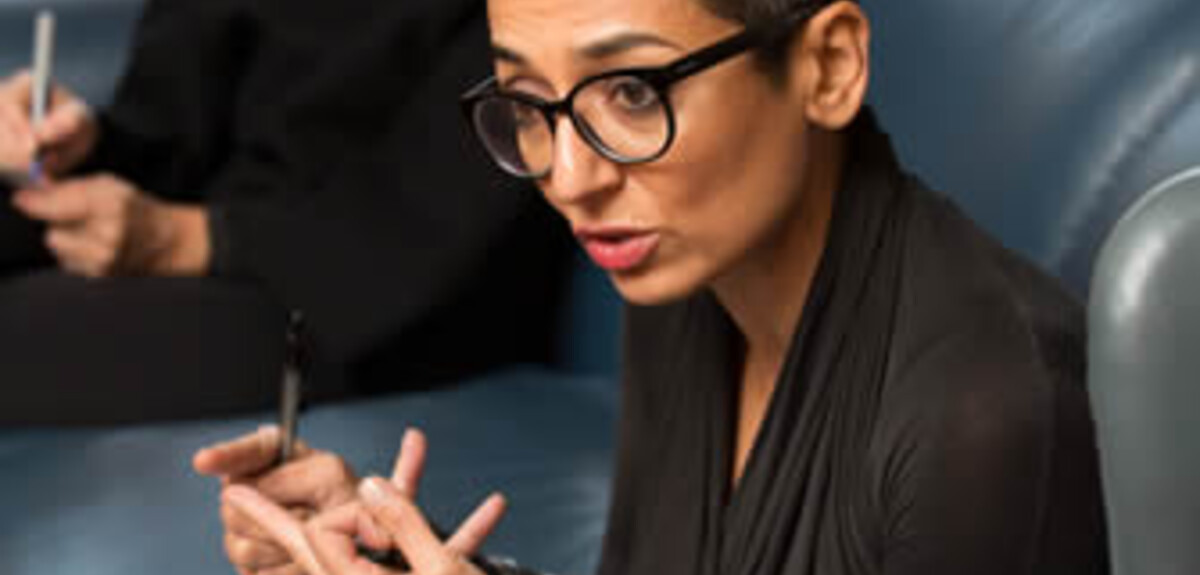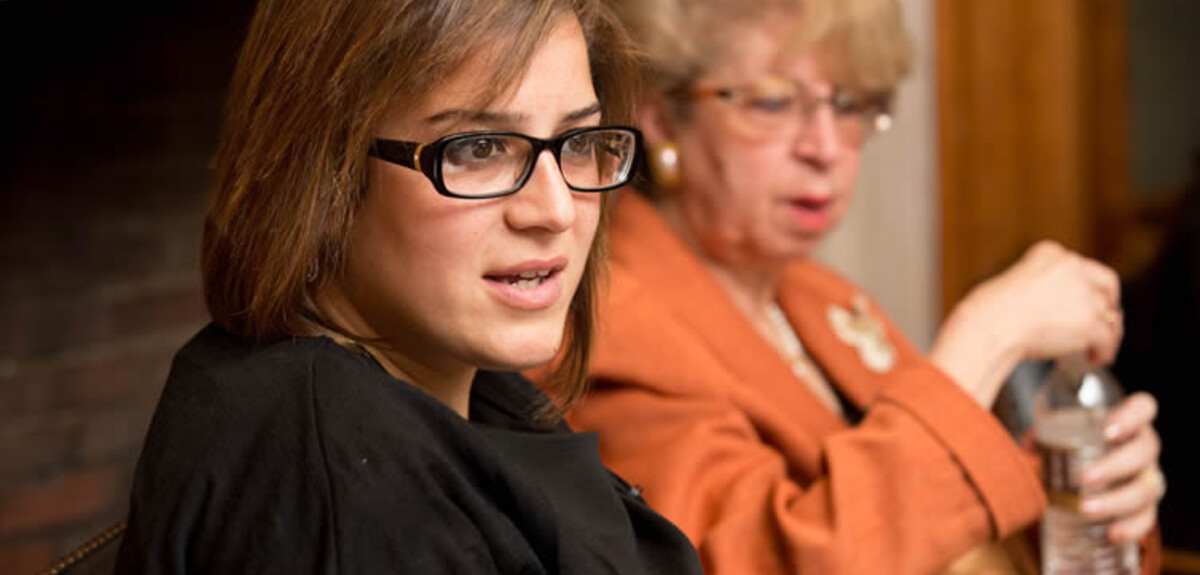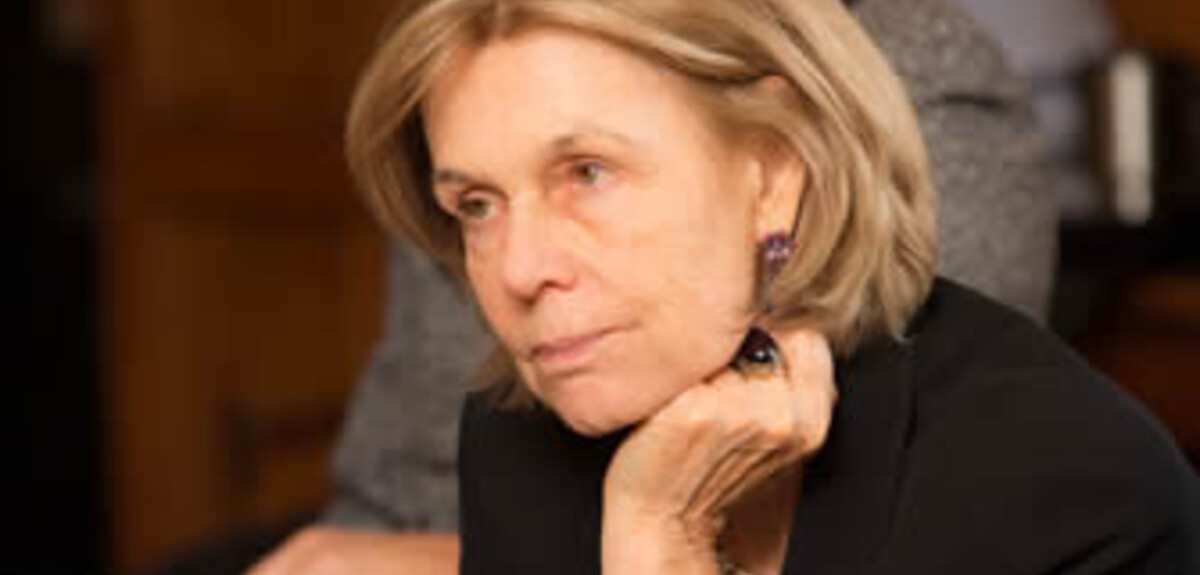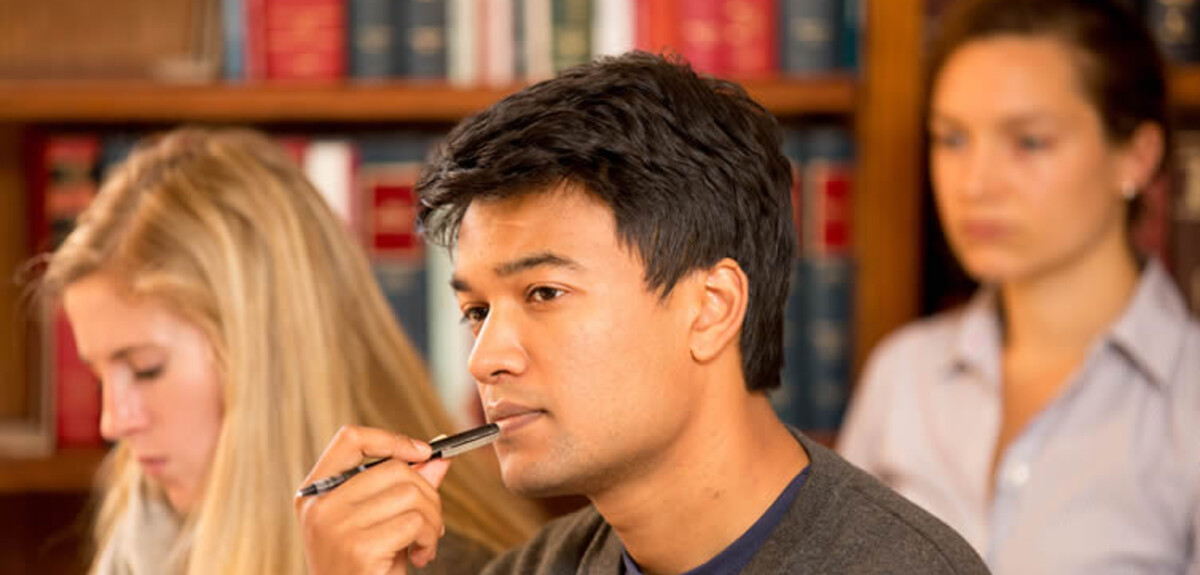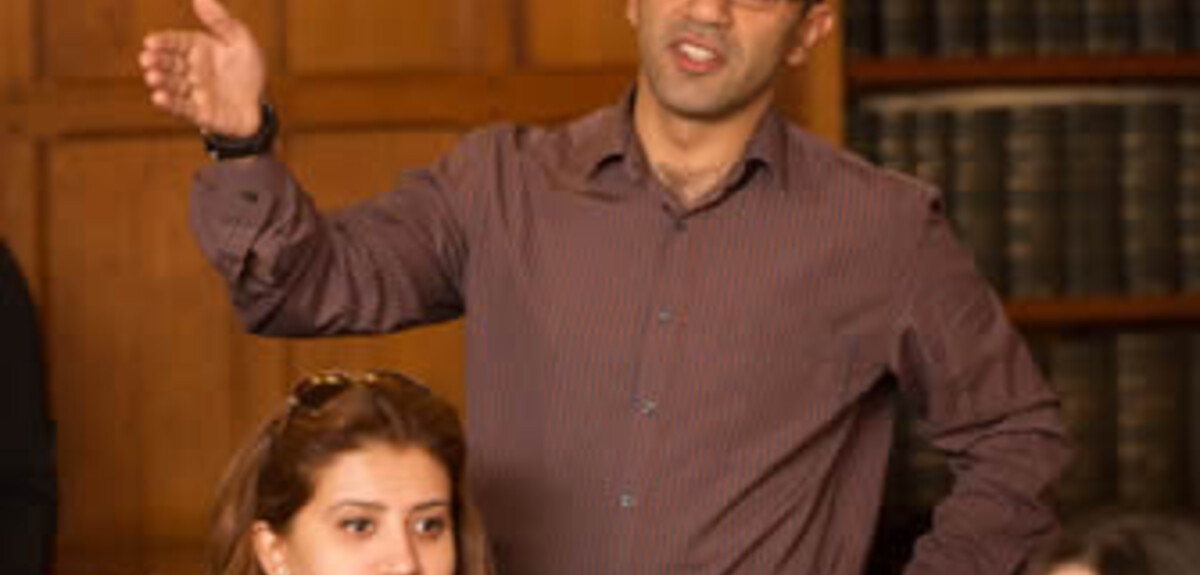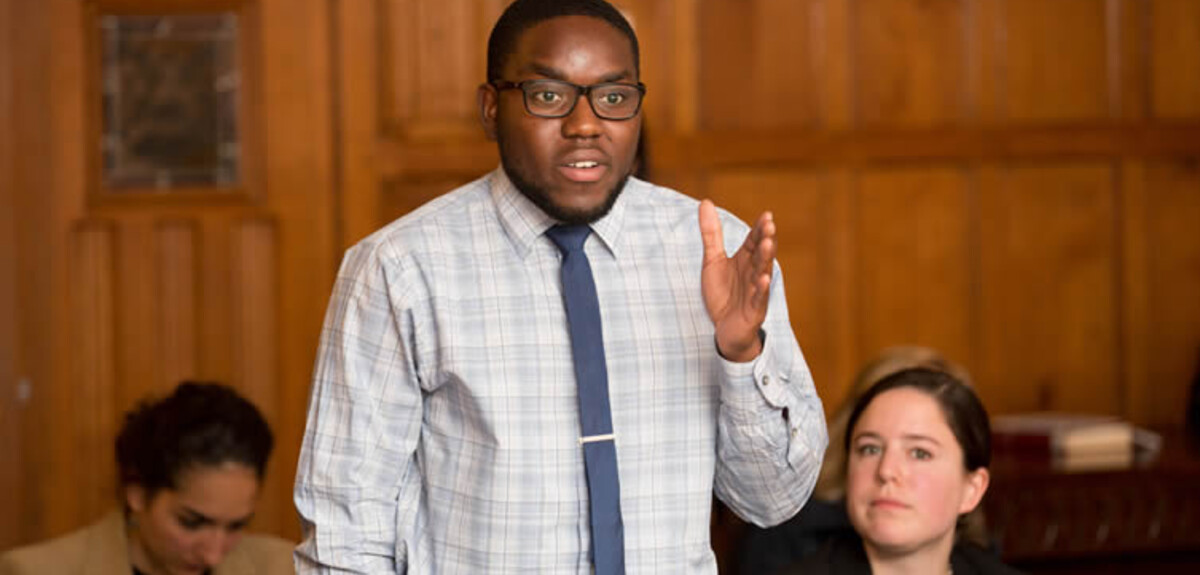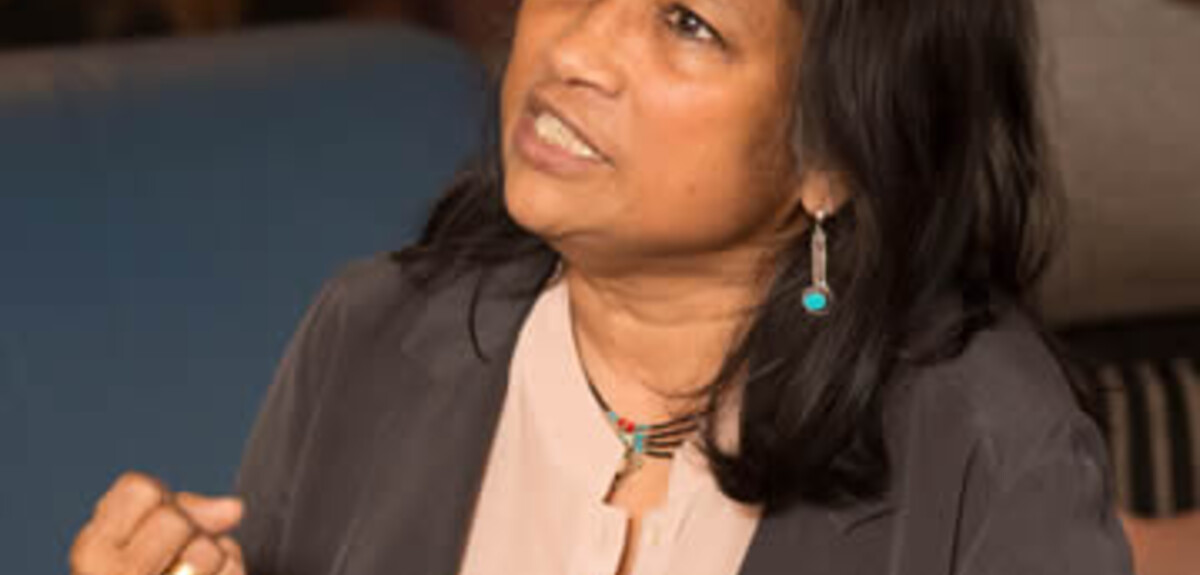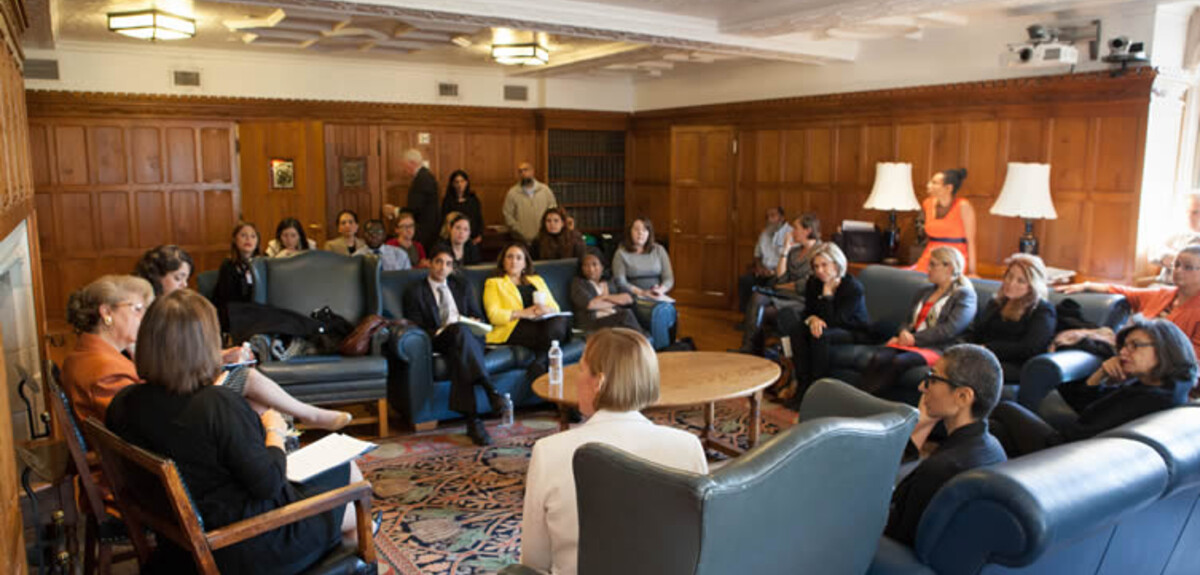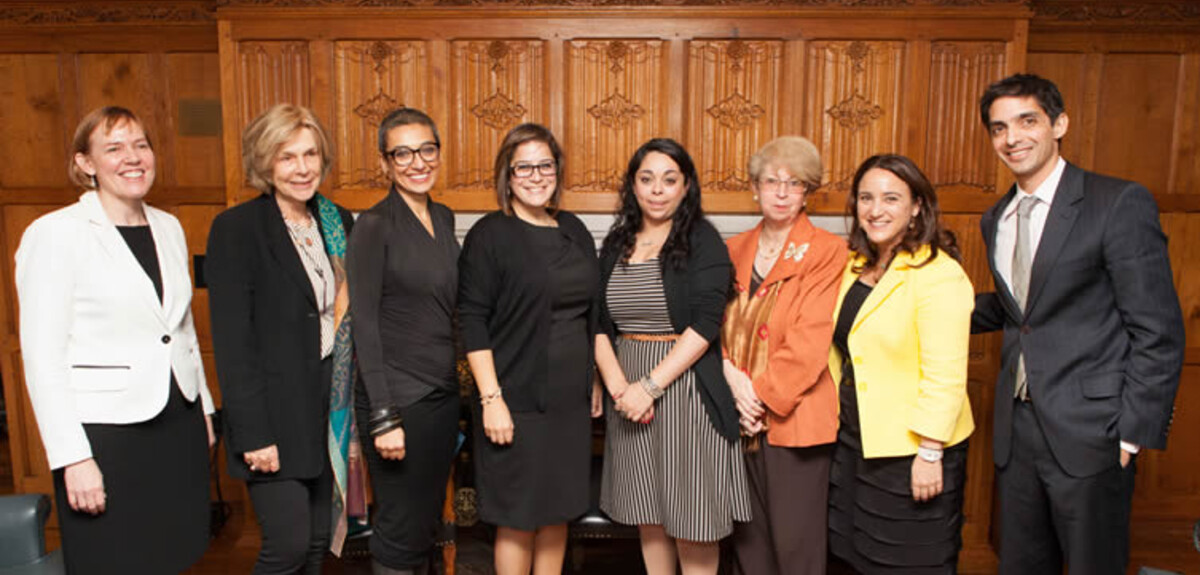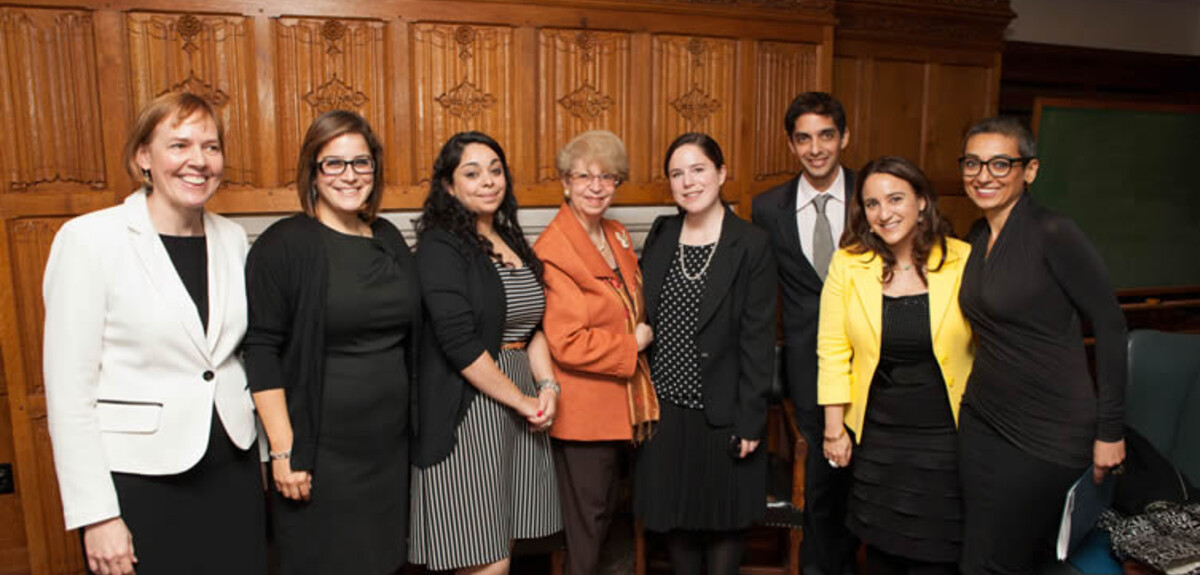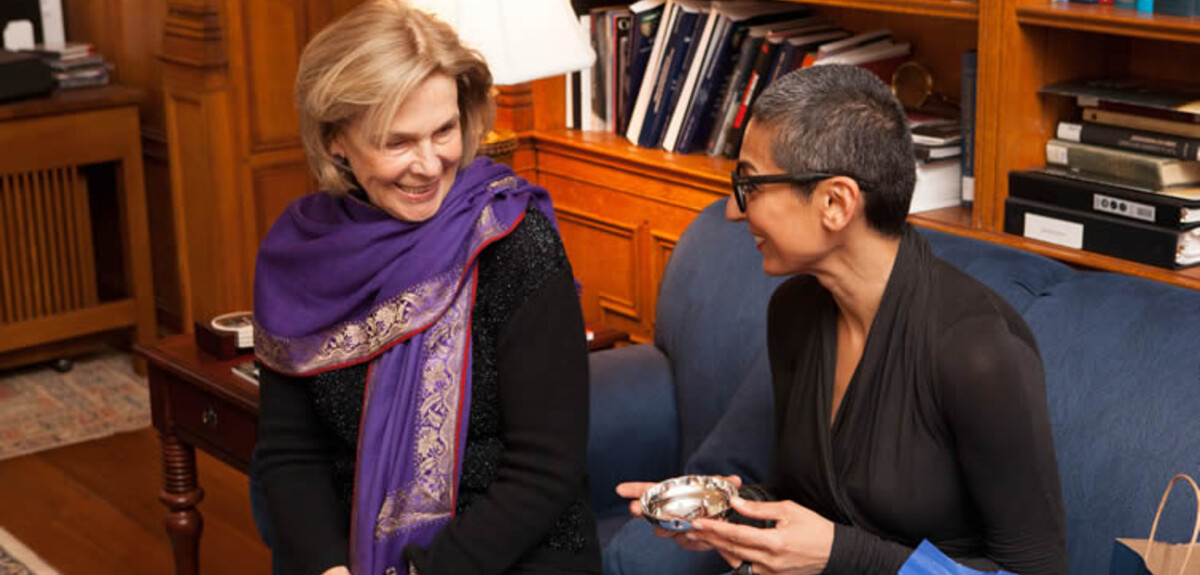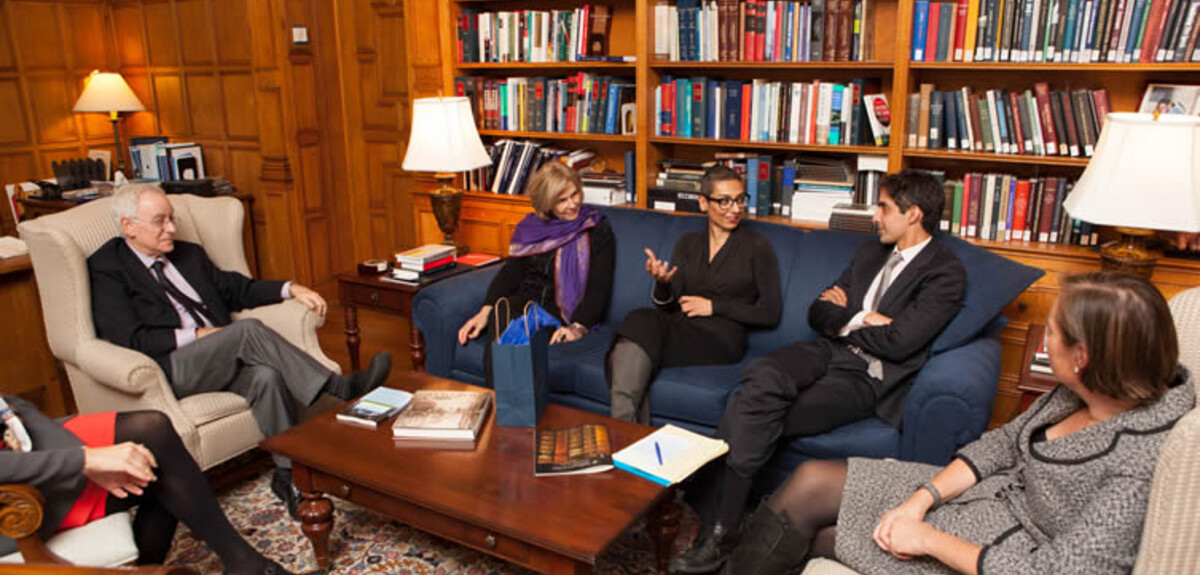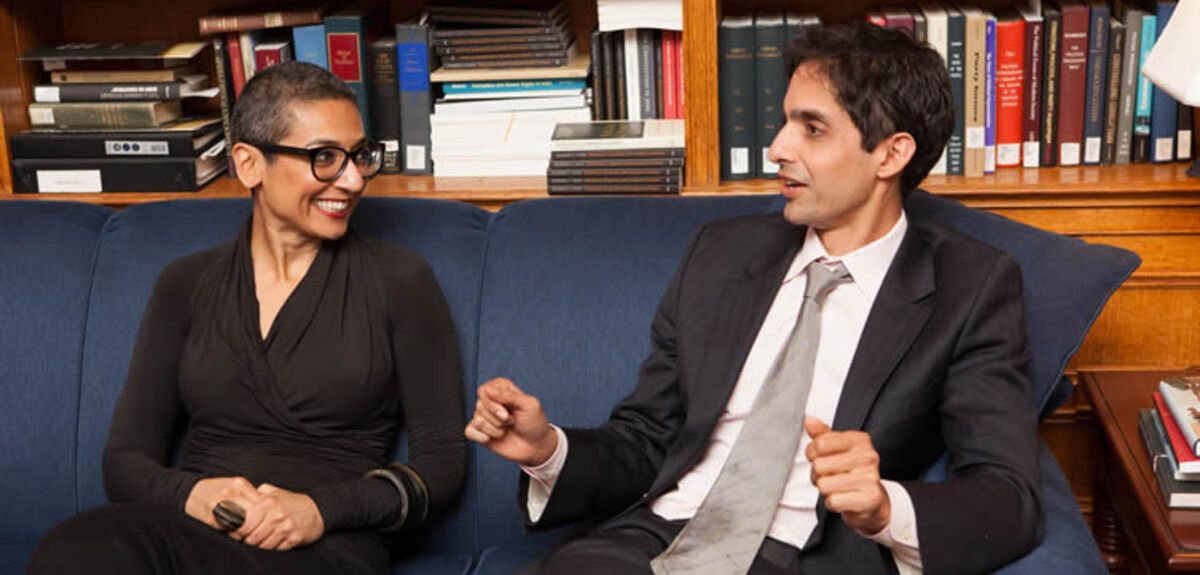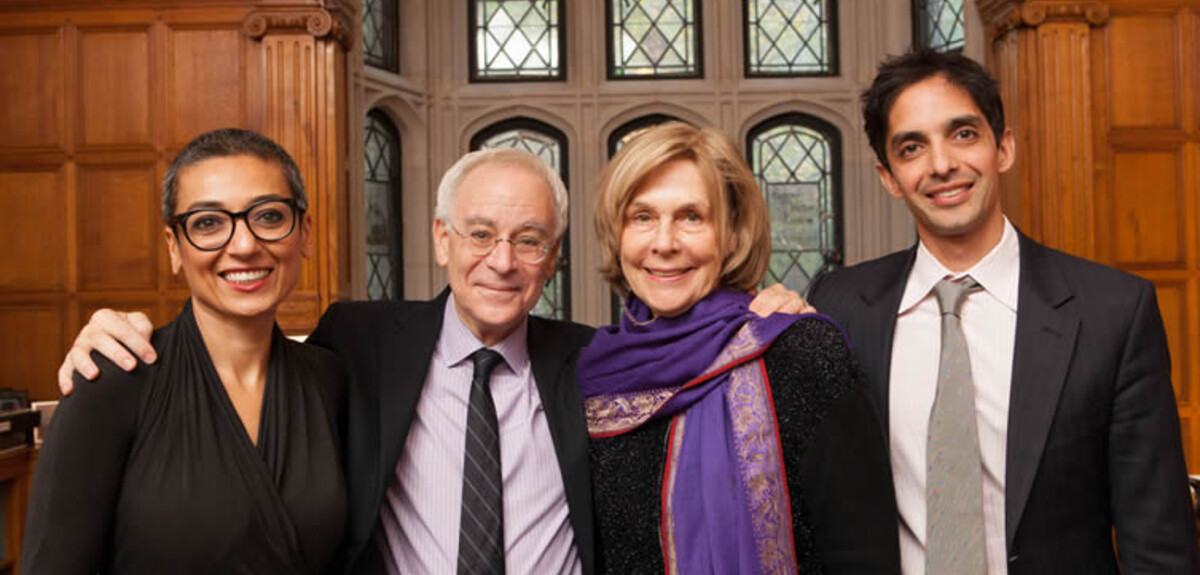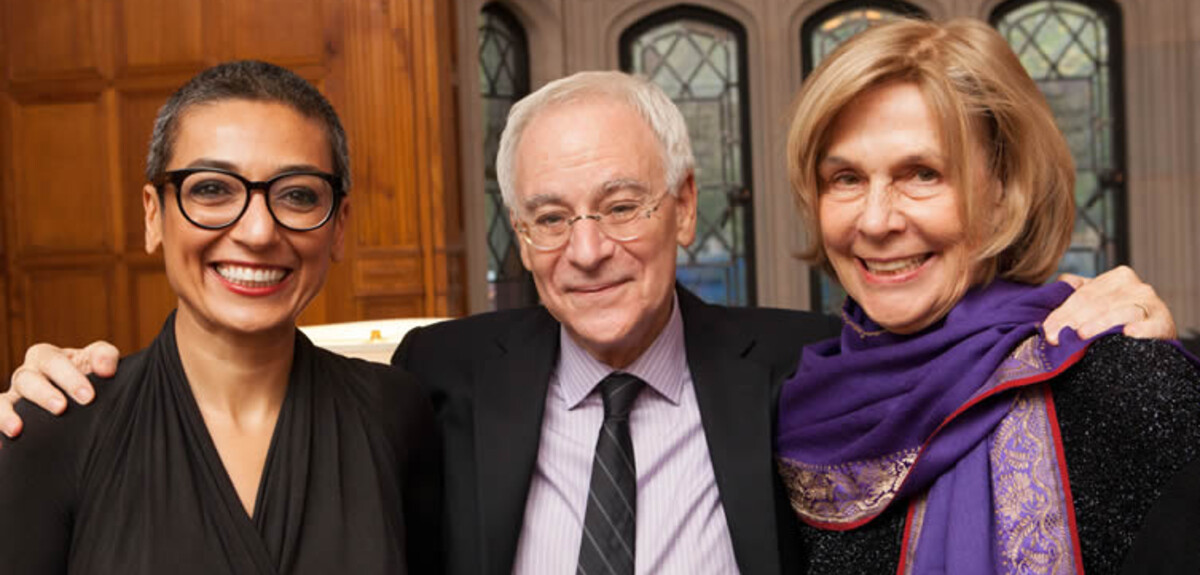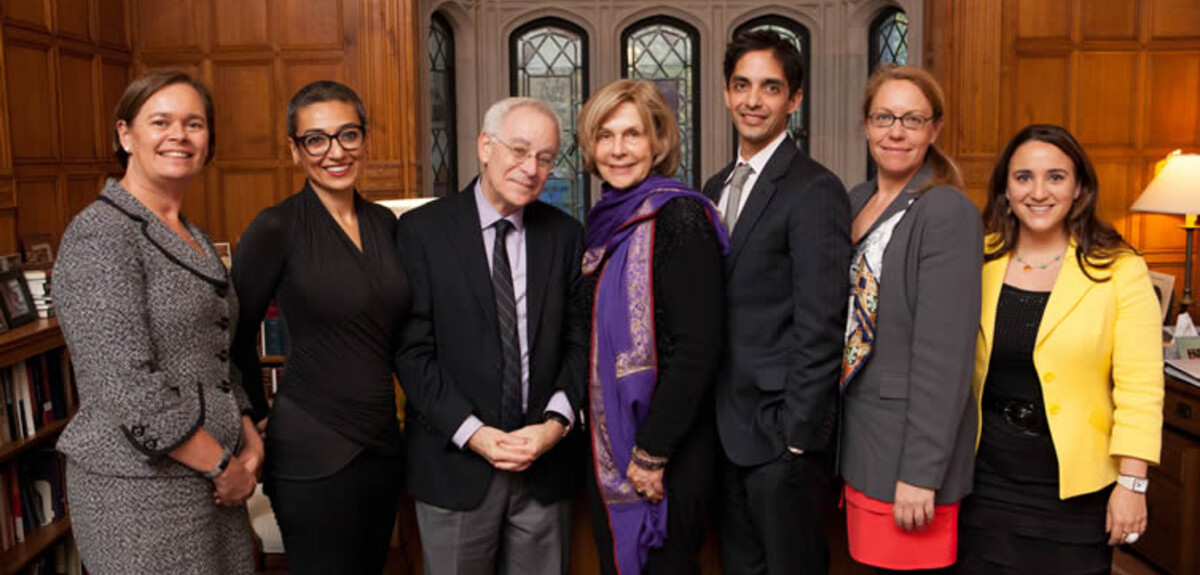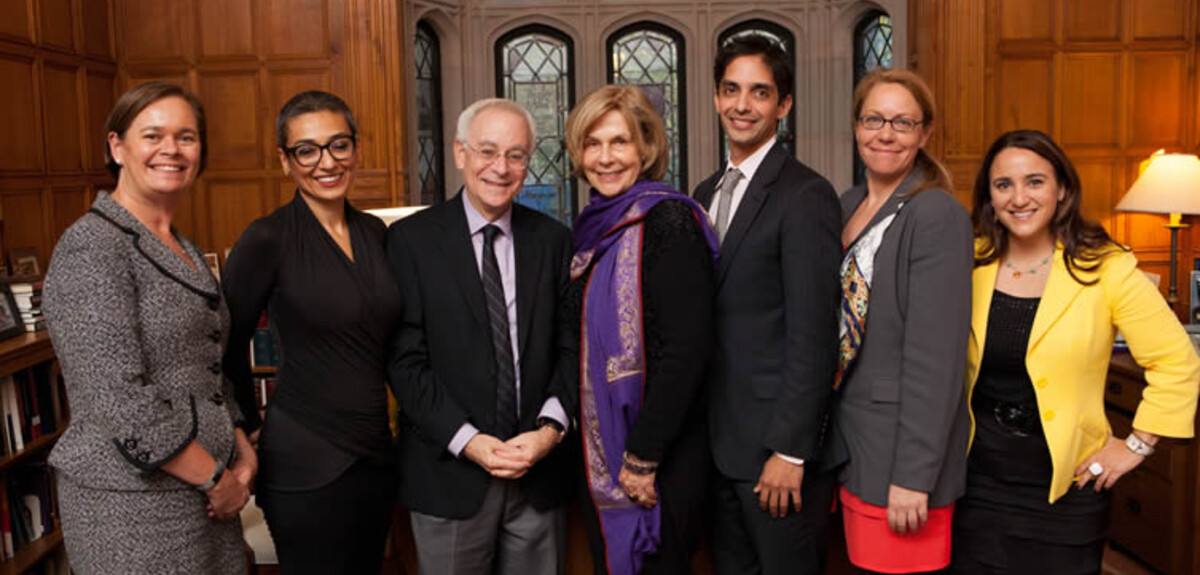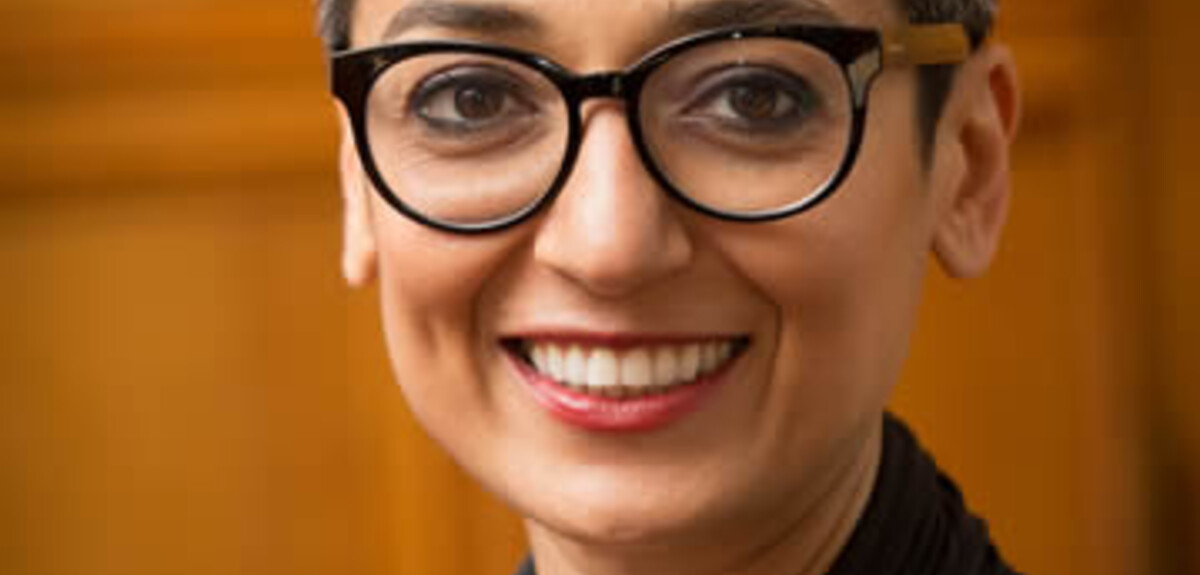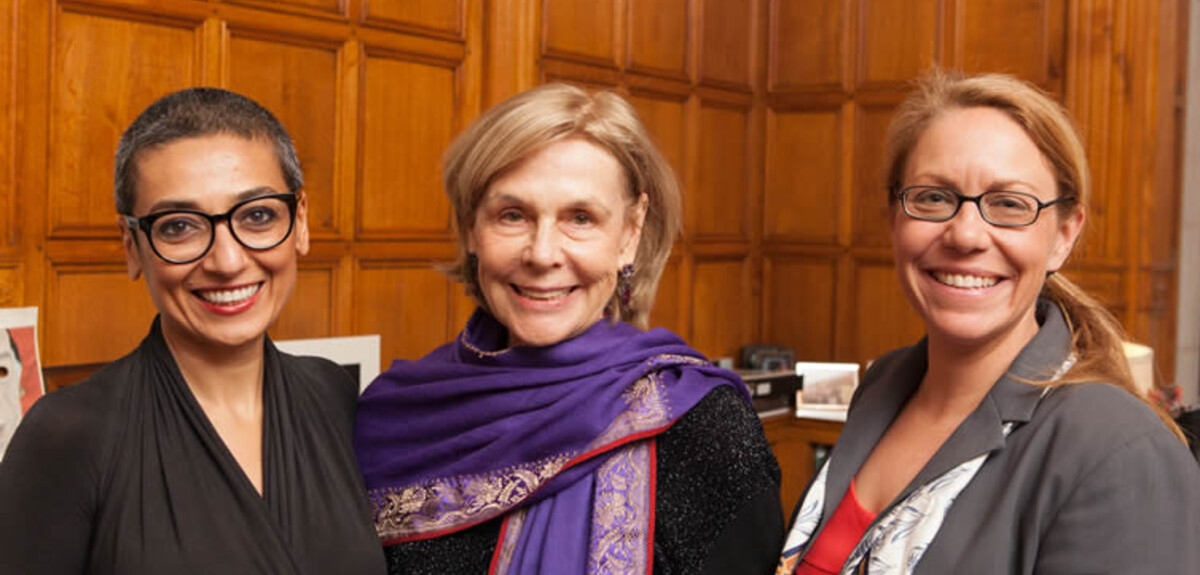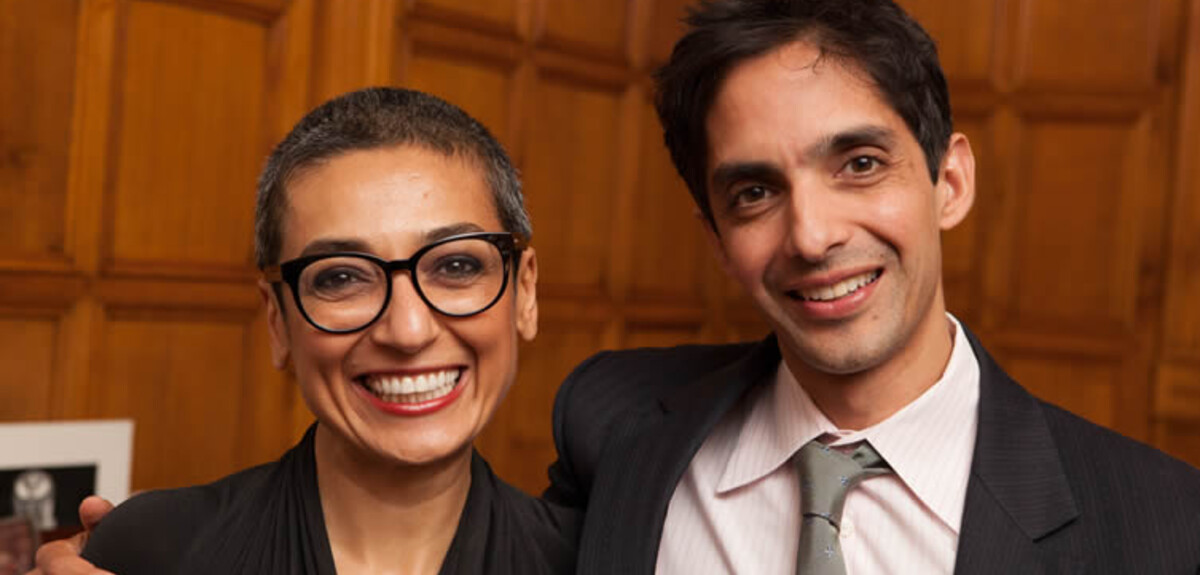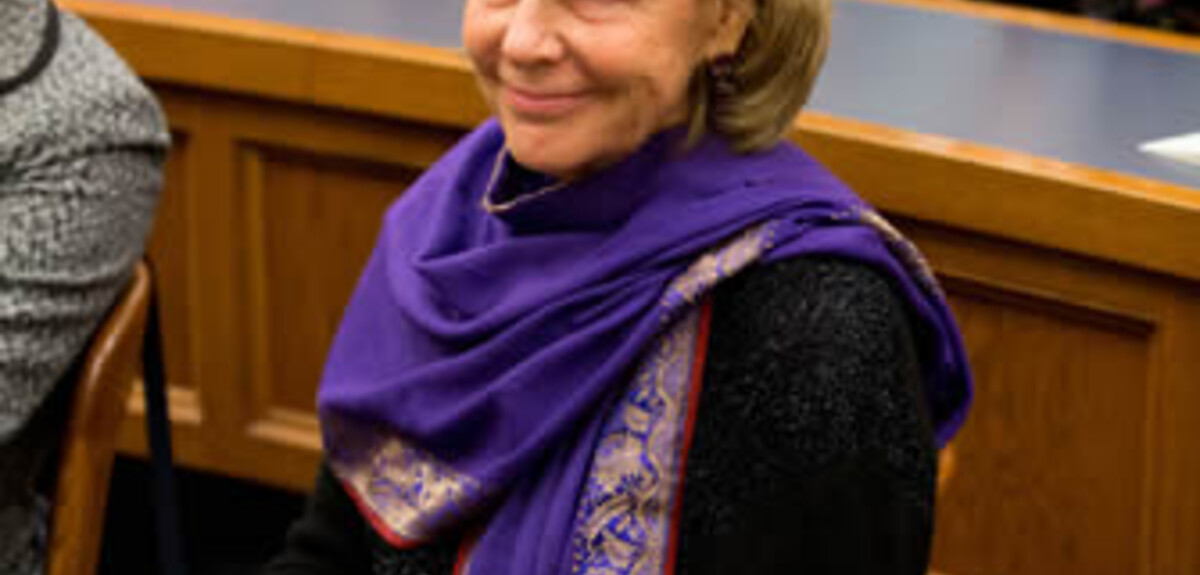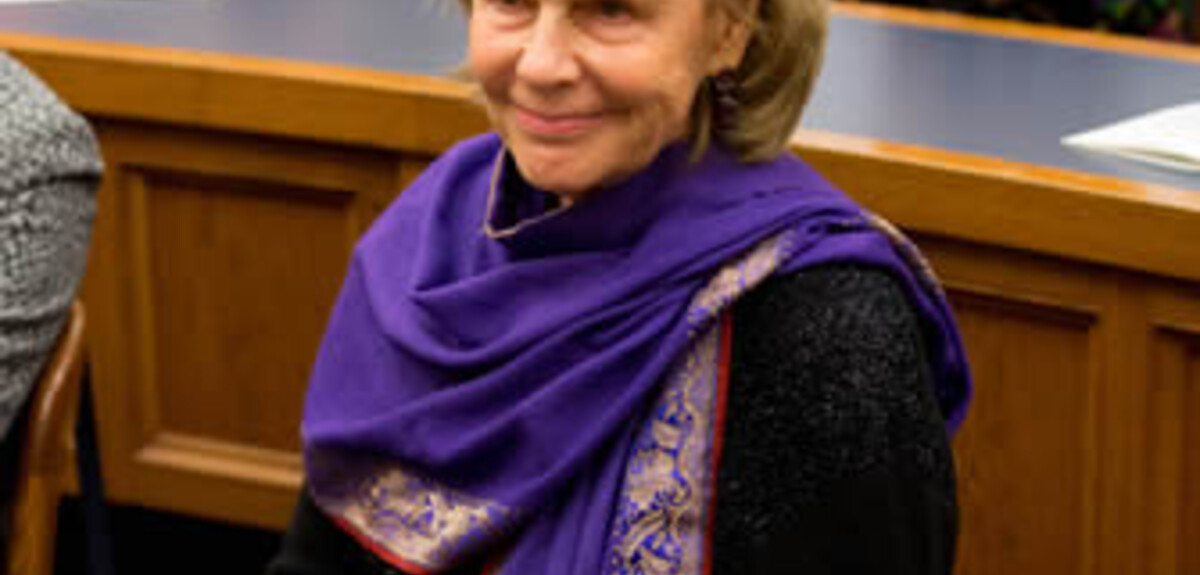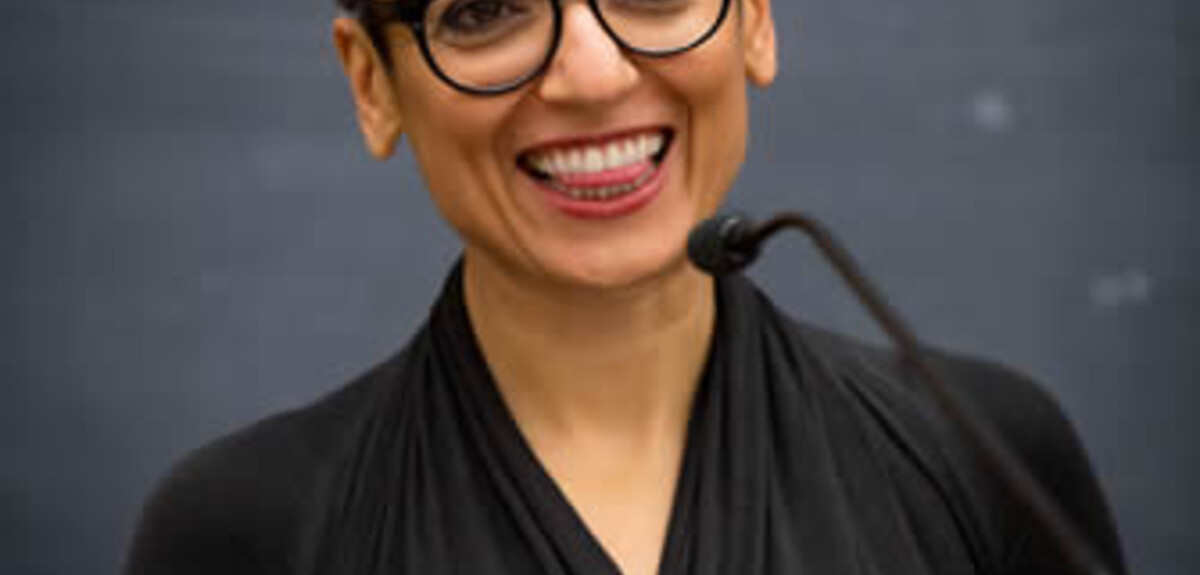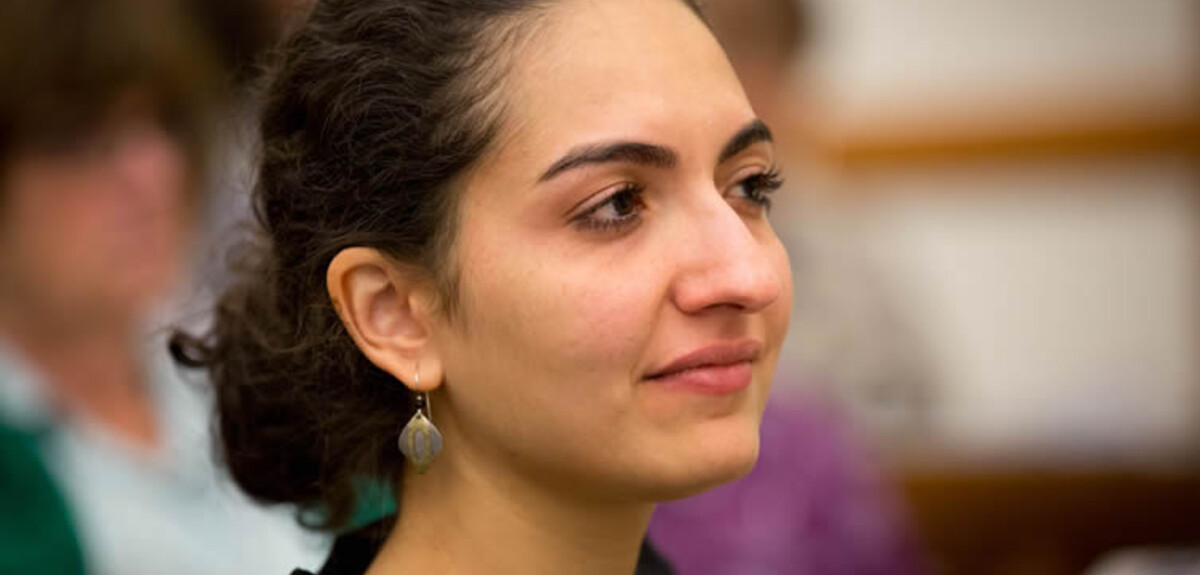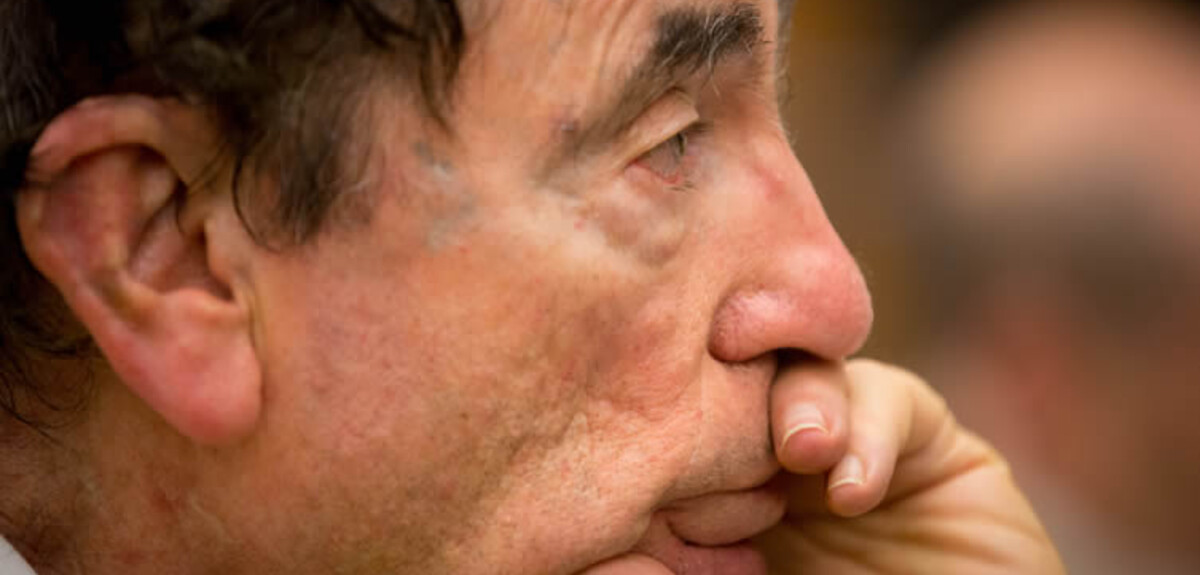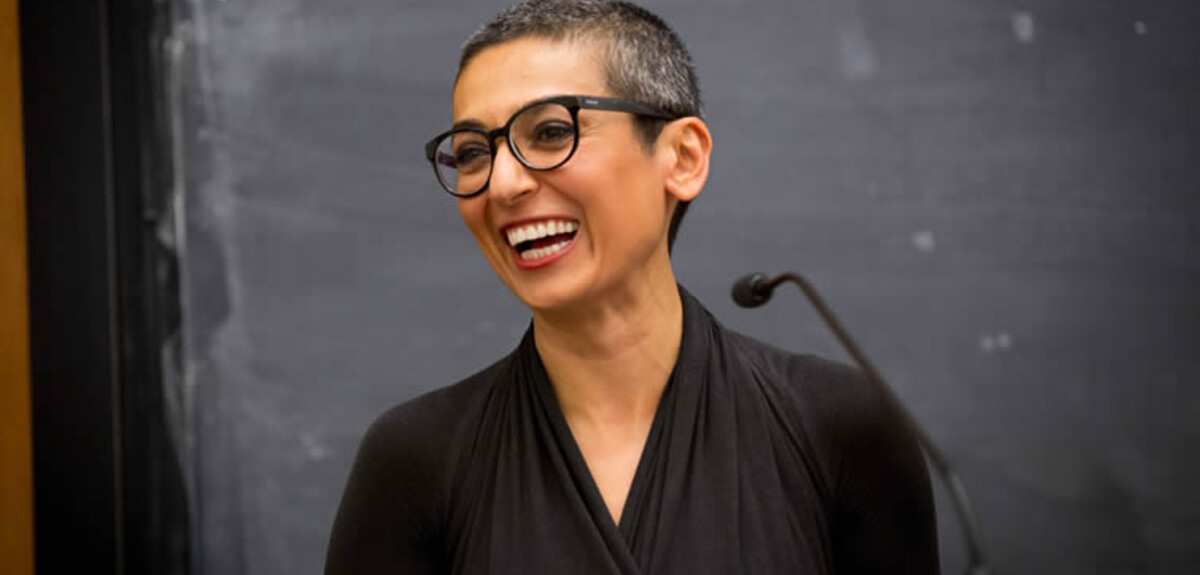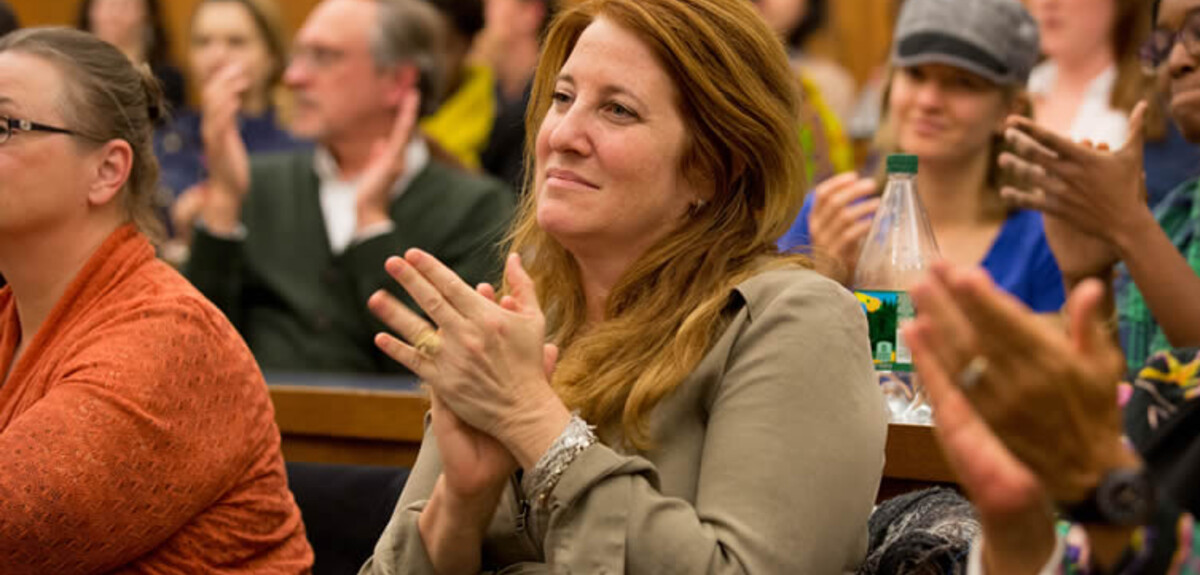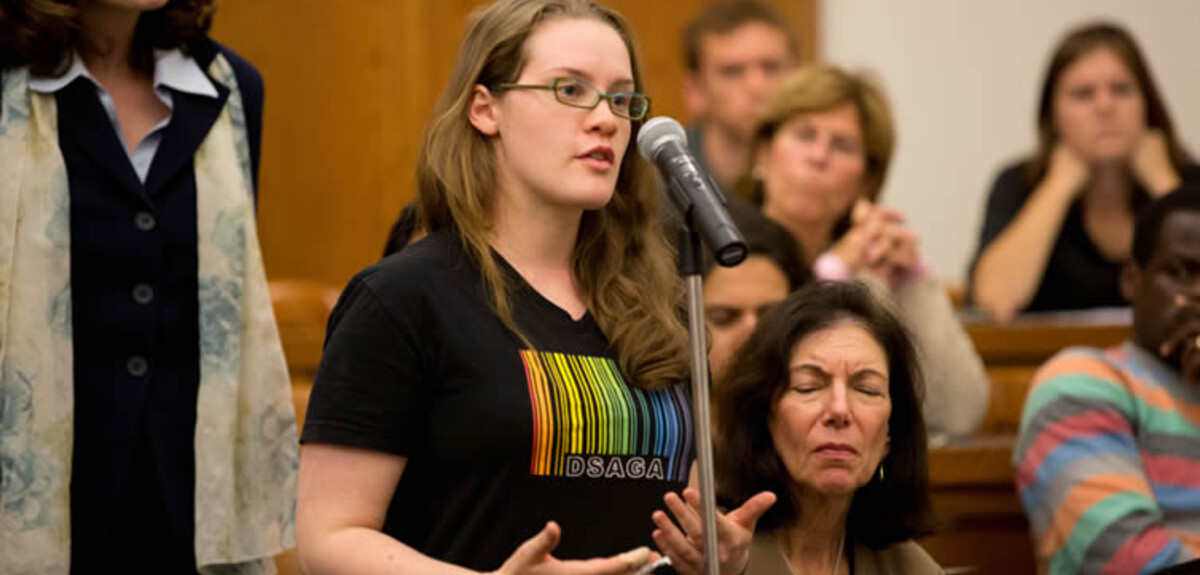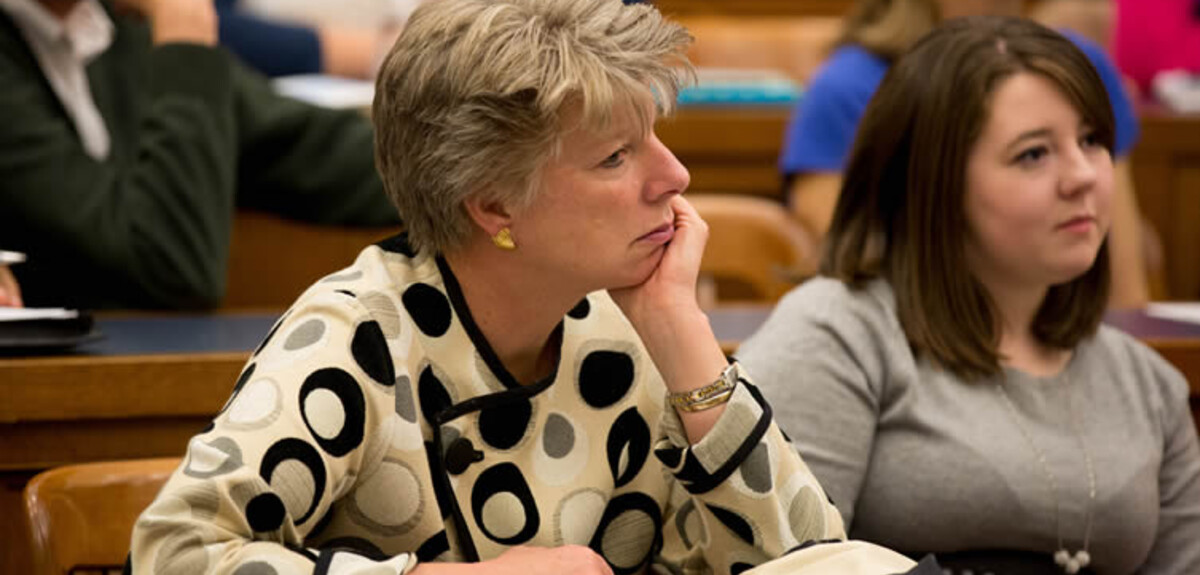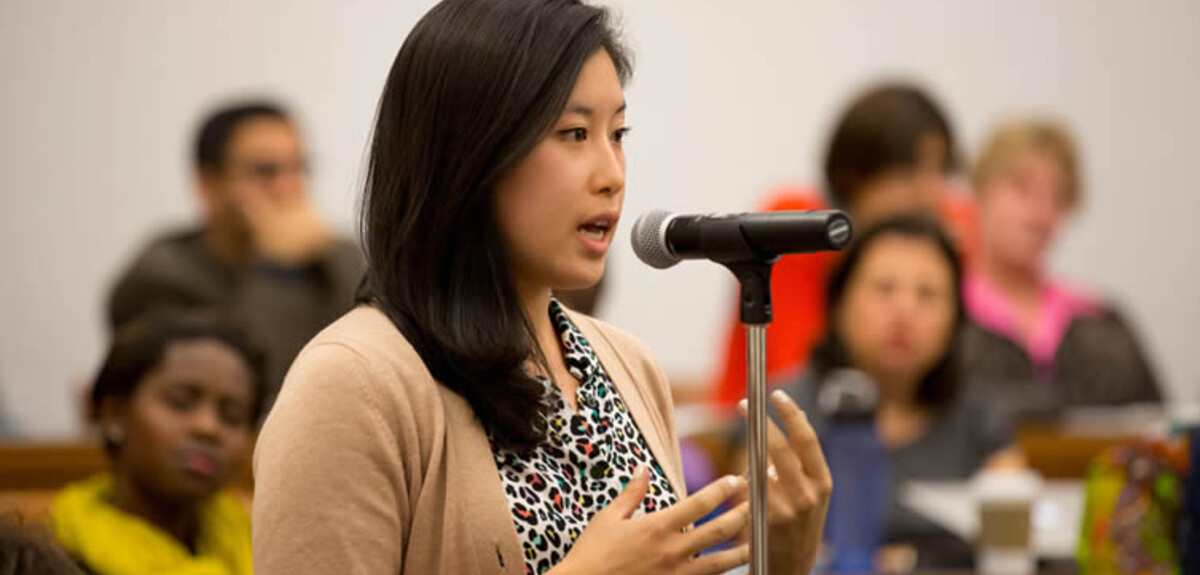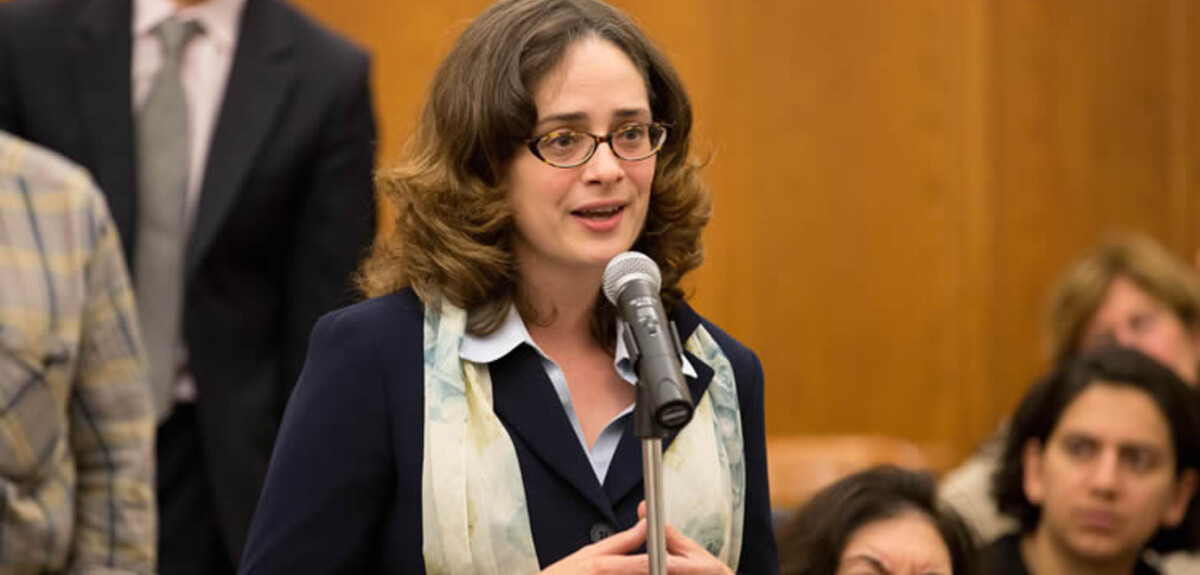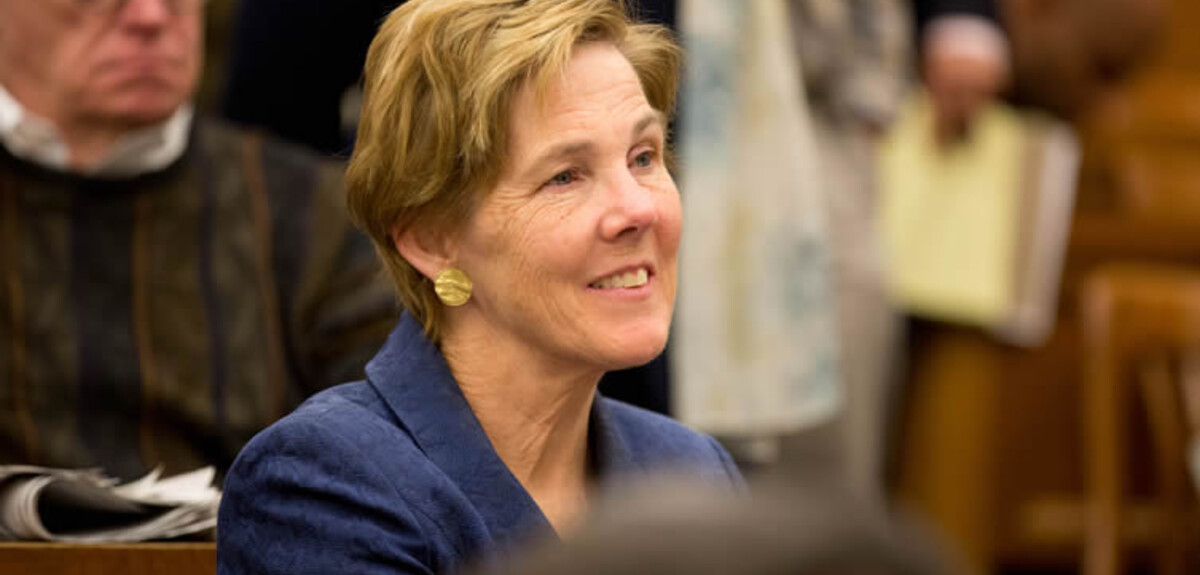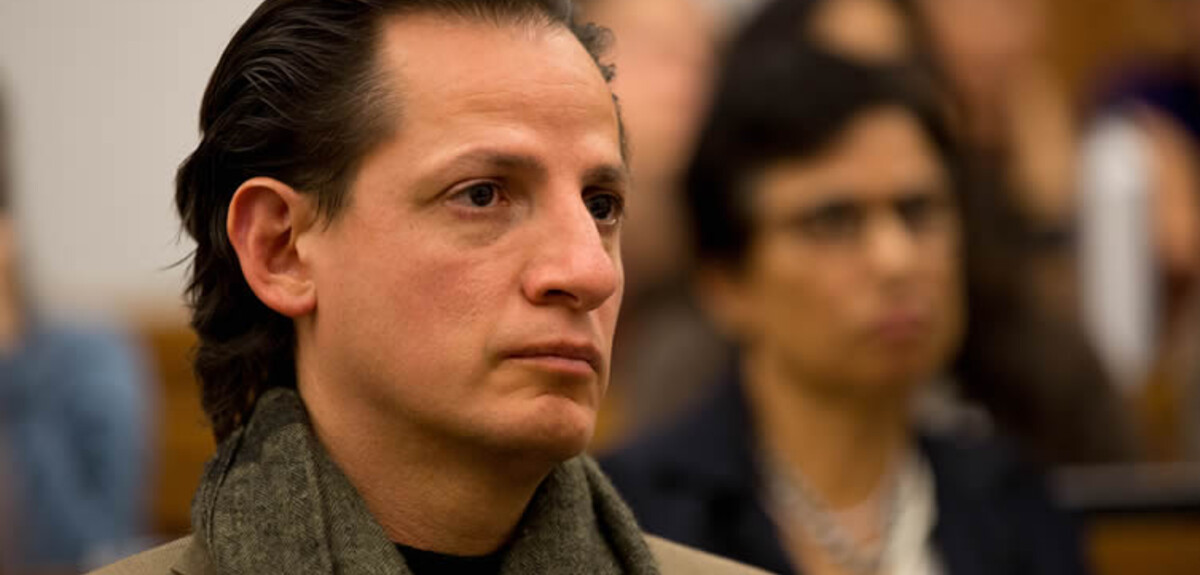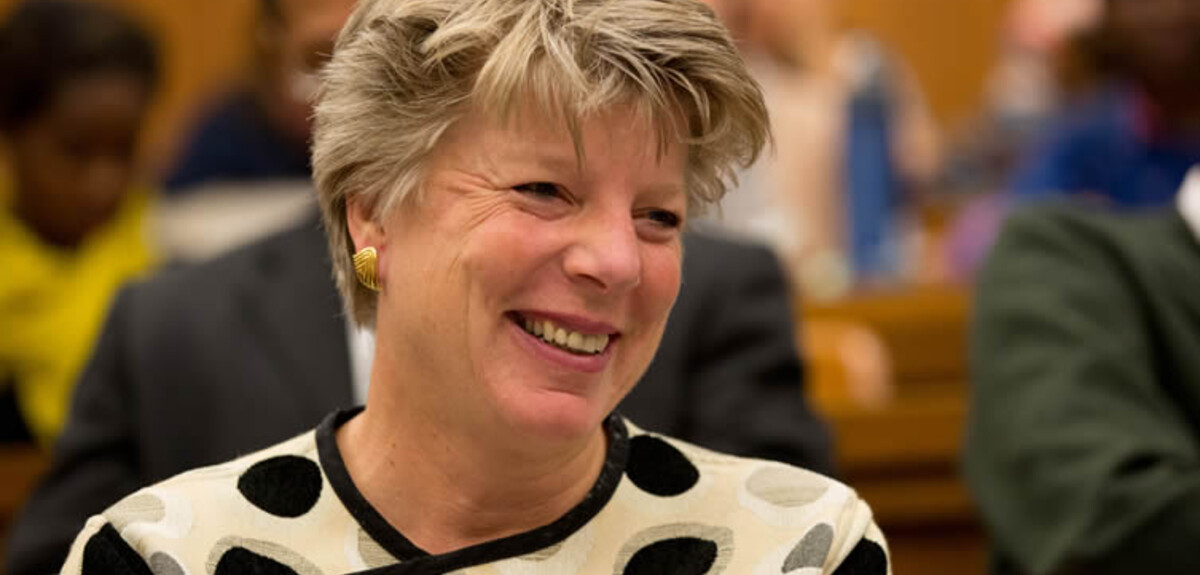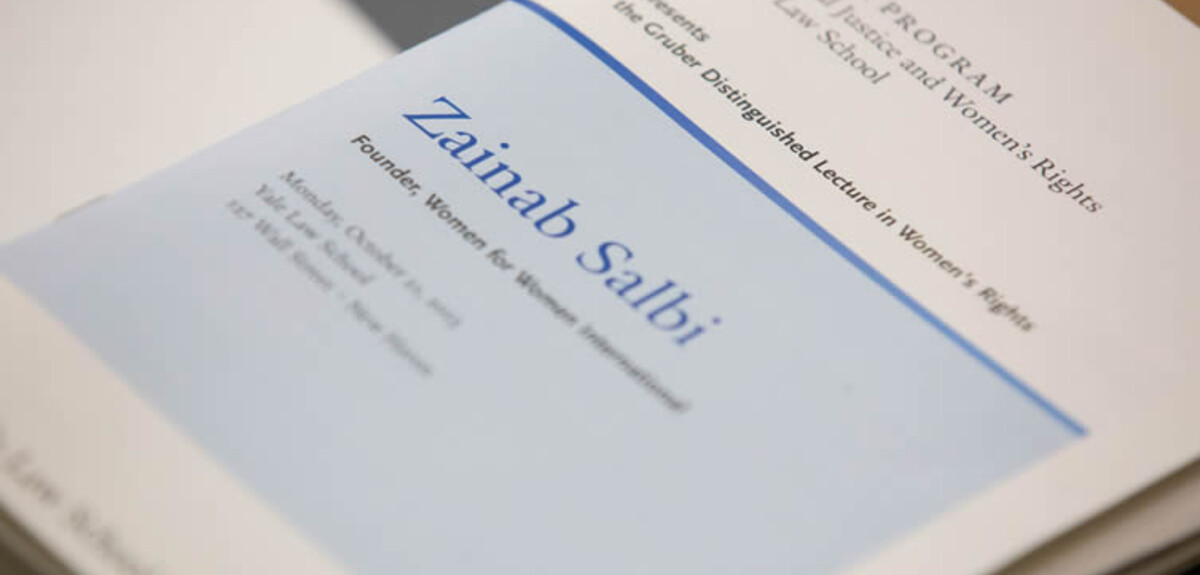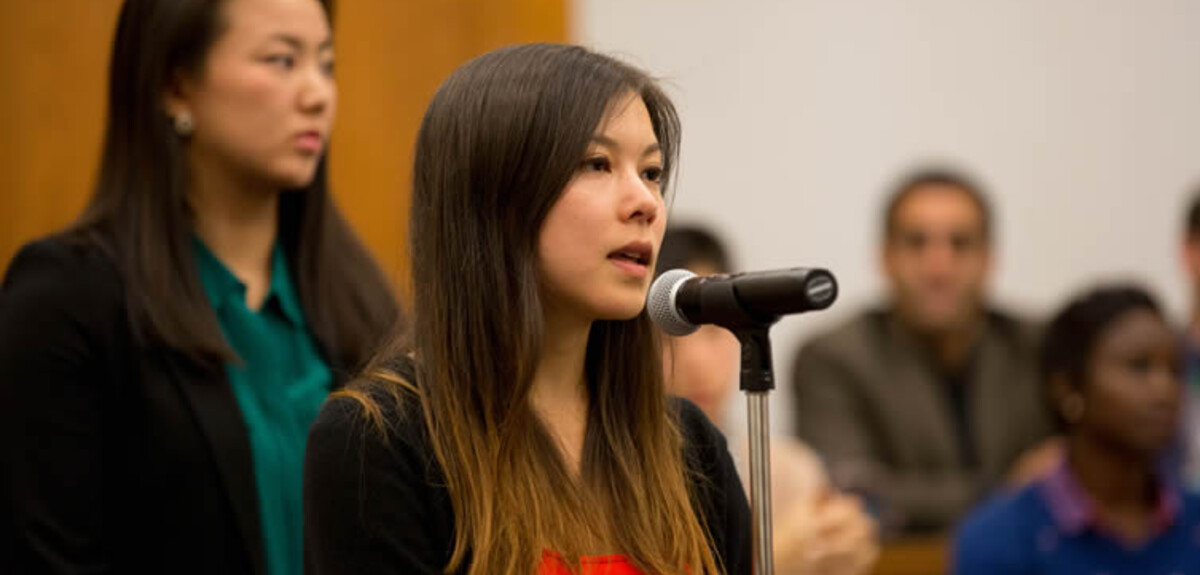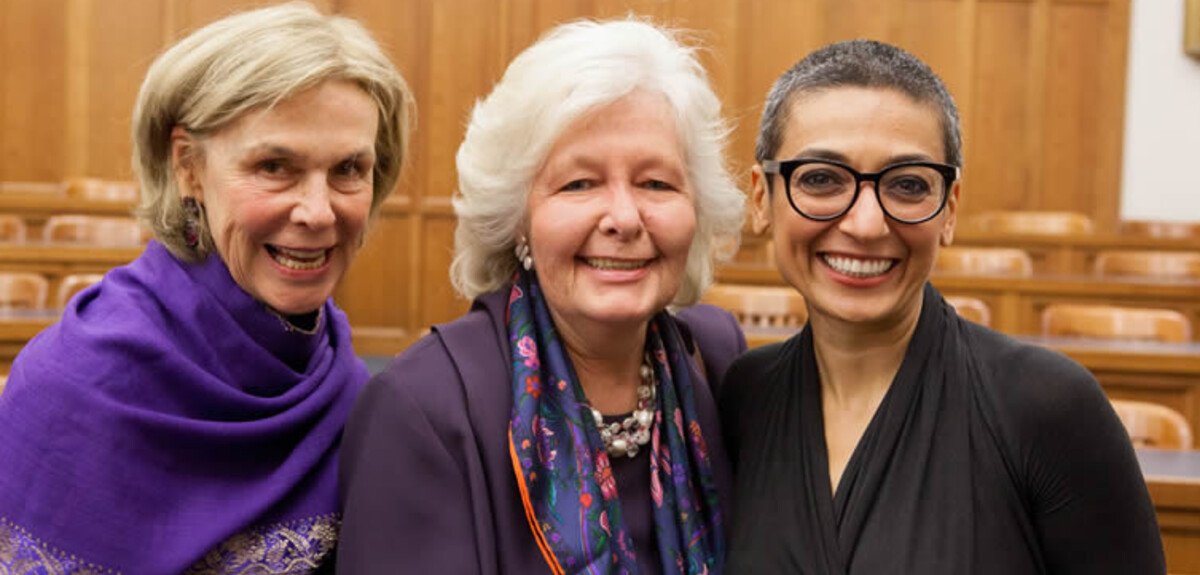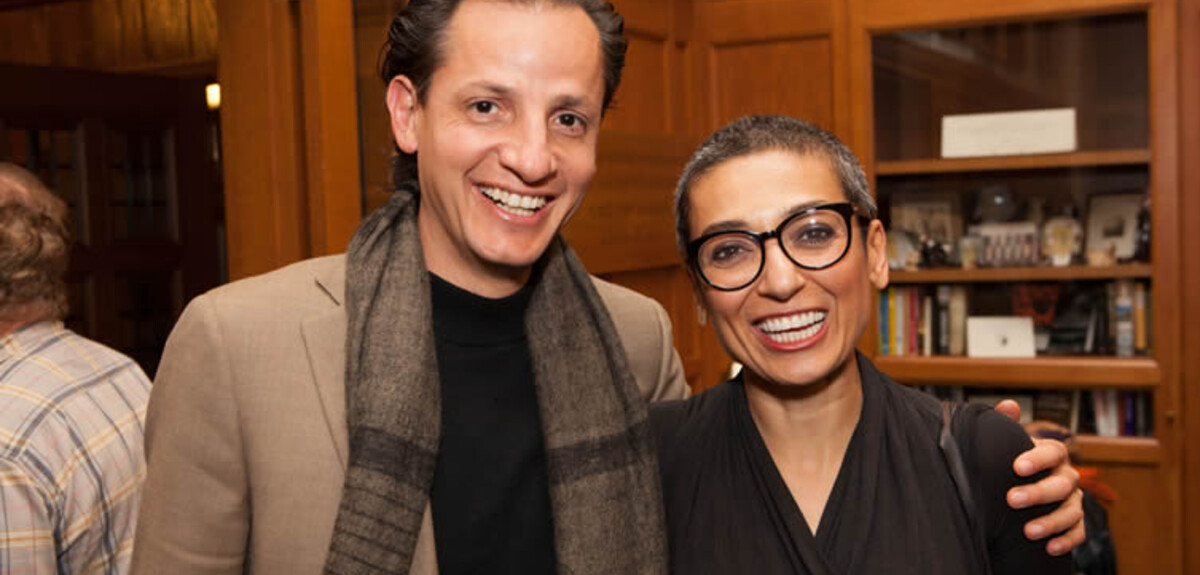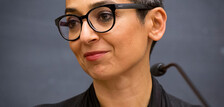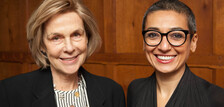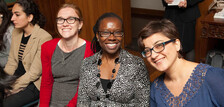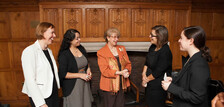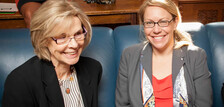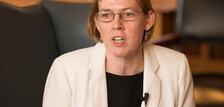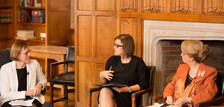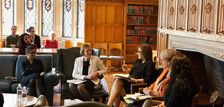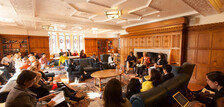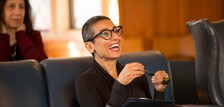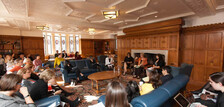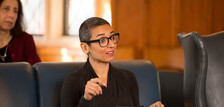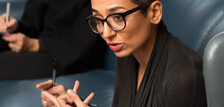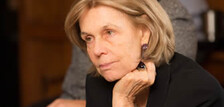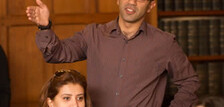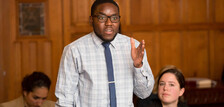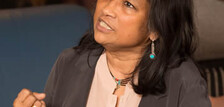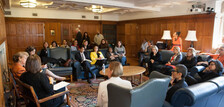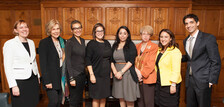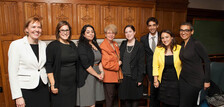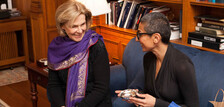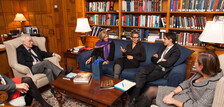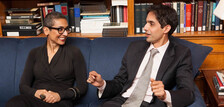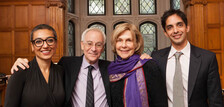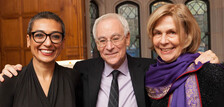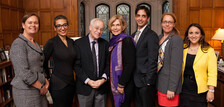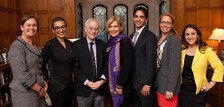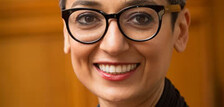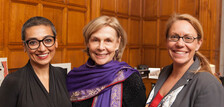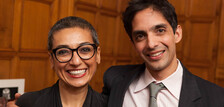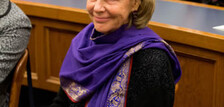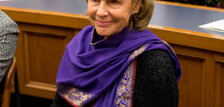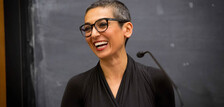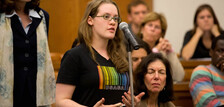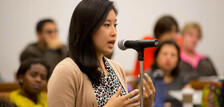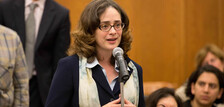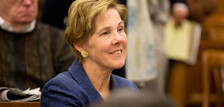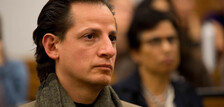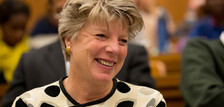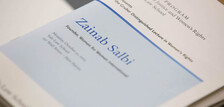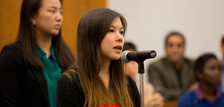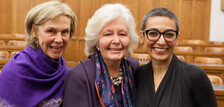
The Gruber Program was delighted to welcome Zainab Salbi as the Gruber Distinguished Lecturer in Women’s Rights. An extraordinary humanitarian and activist, Ms. Salbi is the founder of Women for Women International3, an organization dedicated to empowering women in post-conflict areas. Ms. Salbi’s Lecture took place on October 21, 2013, to a packed lecture hall of over 150 students, faculty, and members of the broader community. The Gruber Lecture was also webcast live4. In the words of first year law student Jade Chong-Smith ’16: "Ms. Salbi's lecture provided an important humanizing element to the role of law in development. She touched on a much overlooked topic by spurring students to empathize with the stakeholders they work with in advancing social justice initiatives. I have been truly inspired!”
In addition to delivering a riveting lecture at the Law School, Ms. Salbi spent two days on campus interacting with students and faculty from across campus. In close collaboration with faculty host Muneer Ahmad (Clinical Professor of Law), the Gruber Program developed a series of events unified by the theme “Empowering Voice, Engendering Change.” These discussions explored the promotion of women’s social and political voices as vehicles of political, economic, and social change.
The program at the Law School featured two panel discussions engaging different facets of Ms. Salbi’s work. The first event was entitled “Voice and Revolution: Gender, Rights, and the Roles of Women in the Middle East.”5 The theme engaged Ms. Salbi’s latest initiative, a multimedia collaboration focused on the voice of Arab women during and since recent political uprisings. The discussion was moderated by Ellen Lust (Associate Professor, Department of Political Science, Yale University), and centered on Egypt as a bellwether for the region. Panelists included Ambassador Sallama Shaker (former Egyptian Assistant Minister of Foreign Affairs for the Americas and Visiting Professor at Yale Divinity School), Hafsa Halawa (UNDP consultant and one of the lawyer-defendants convicted in the infamous “NGO Trial”), and Nancy Messieh (Associate Director of Atlantic Council’s Rafik Hariri Center and editor of the blog EgyptSource). The inter-generational panel reflected diverse viewpoints and critical points of contention among Egyptian activists and scholars.
A second panel hosted by the Law School, entitled “Reconsidering Voice: Agency, Gender, and the Role of Law in Development,”6 was inspired by Ms. Salbi’s economic empowerment initiatives through Women for Women International. Professor Muneer Ahmad moderated this conversation with Martha Chen (Lecturer in Public Policy, Harvard Kennedy School) and Naila Kabeer (Professor, London School of Economics, Gender Institute). The discussion explored the nuance and complexity of individual voice and collective representation in development initiatives, drawing lessons from Bangladesh, Afghanistan, India, and the United Studies.
The theme of “voice” was next explored in the context of film and media as tools for rights advocacy. Together with one of her documentary film collaborators, Gini Reticker, Ms. Salbi joined a student meeting of the Visual Law Project. The Visual Law Project7 is a student initiative focused on visual advocacy. In anticipation of the Gruber Lecture, the group had organized a prior screening and discussion of one of Reticker and Salbi’s film collaborations, “Women, War, and Peace.” The intimate meeting occasioned a dynamic exchange of ideas regarding how film and the “telling of stories” can be used effectively to advocate for social justice.
Ms. Salbi also met with students and faculty of the Women’s, Gender and Sexuality Studies Department. In a luncheon conversation moderated by Professor Inderpal Grewal, Ms. Salbi reflected on her experiences and struggles in launching Women for Women International, and ultimately finding her own voice as an activist and change agent.
The impact of Ms. Salbi's visit is further described by YLS student Lauren Hartz ’14: "It was a rare opportunity to hear from someone who has overcome extreme adversity in her own life—persecution by one of the world’s most notorious dictators, an arranged marriage, marital rape, and more—to make a profound impact on the lives of women across the globe. Her messages about voice, reflection, and narrative are critical for anyone who wants to become an effective advocate.


